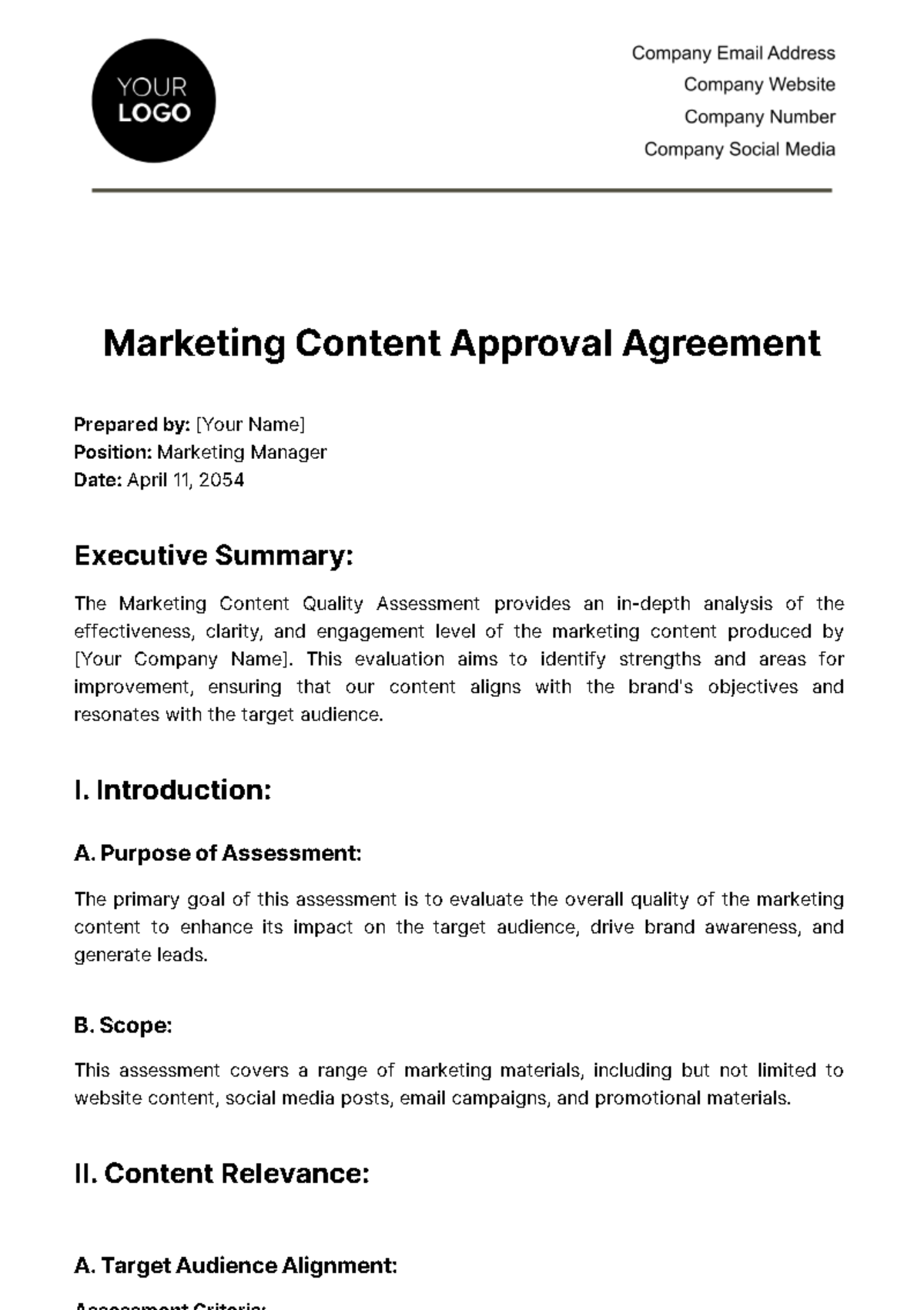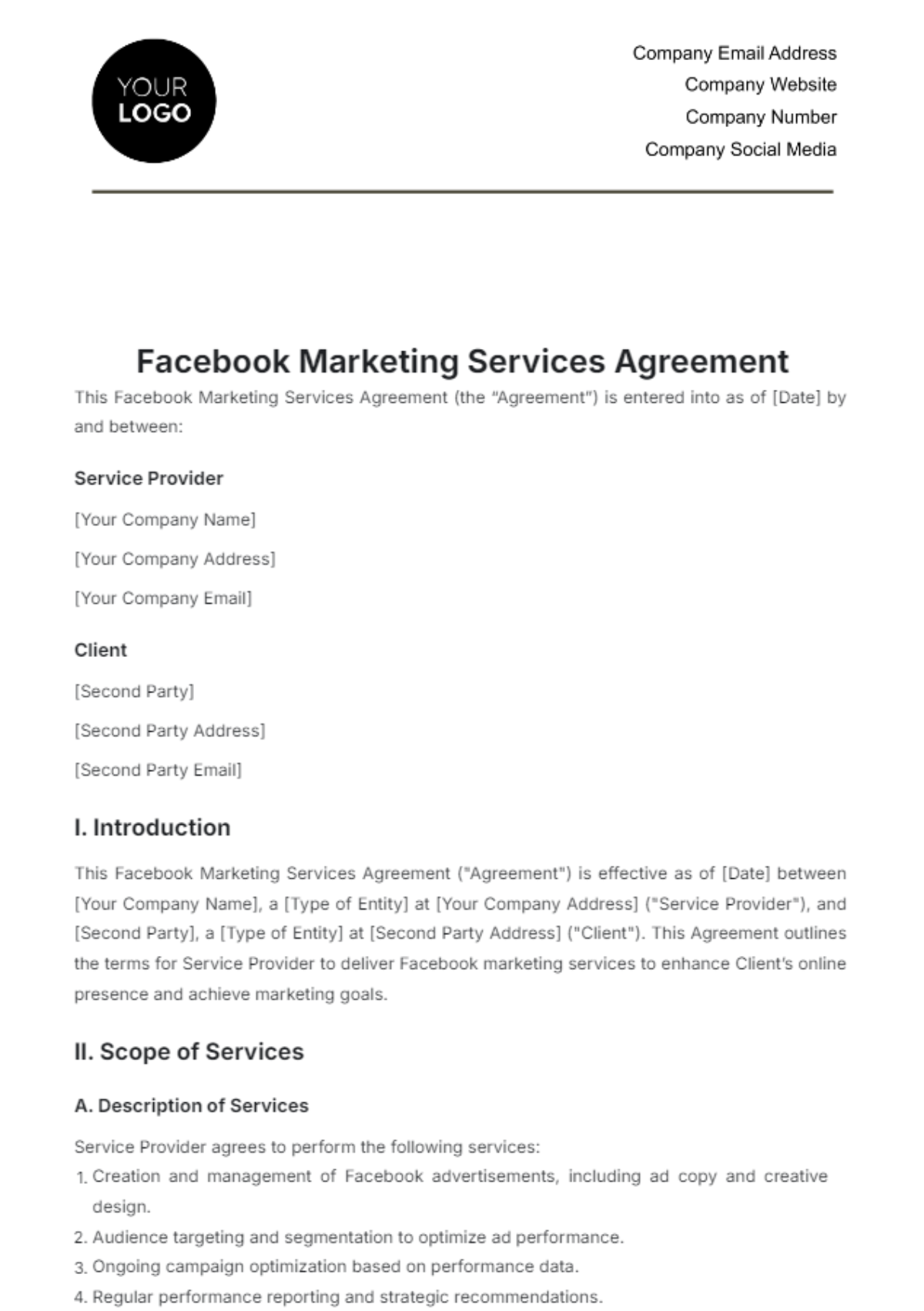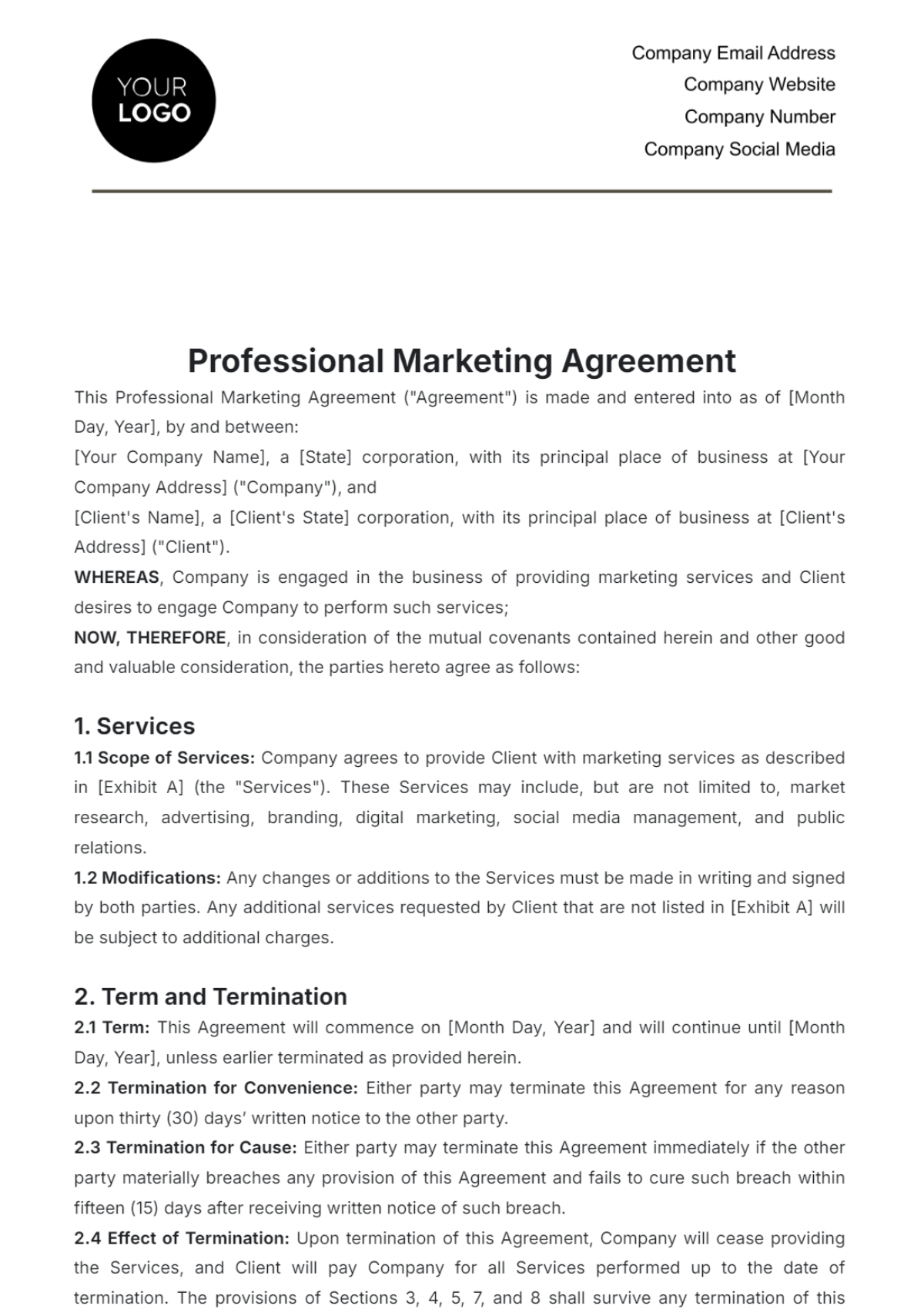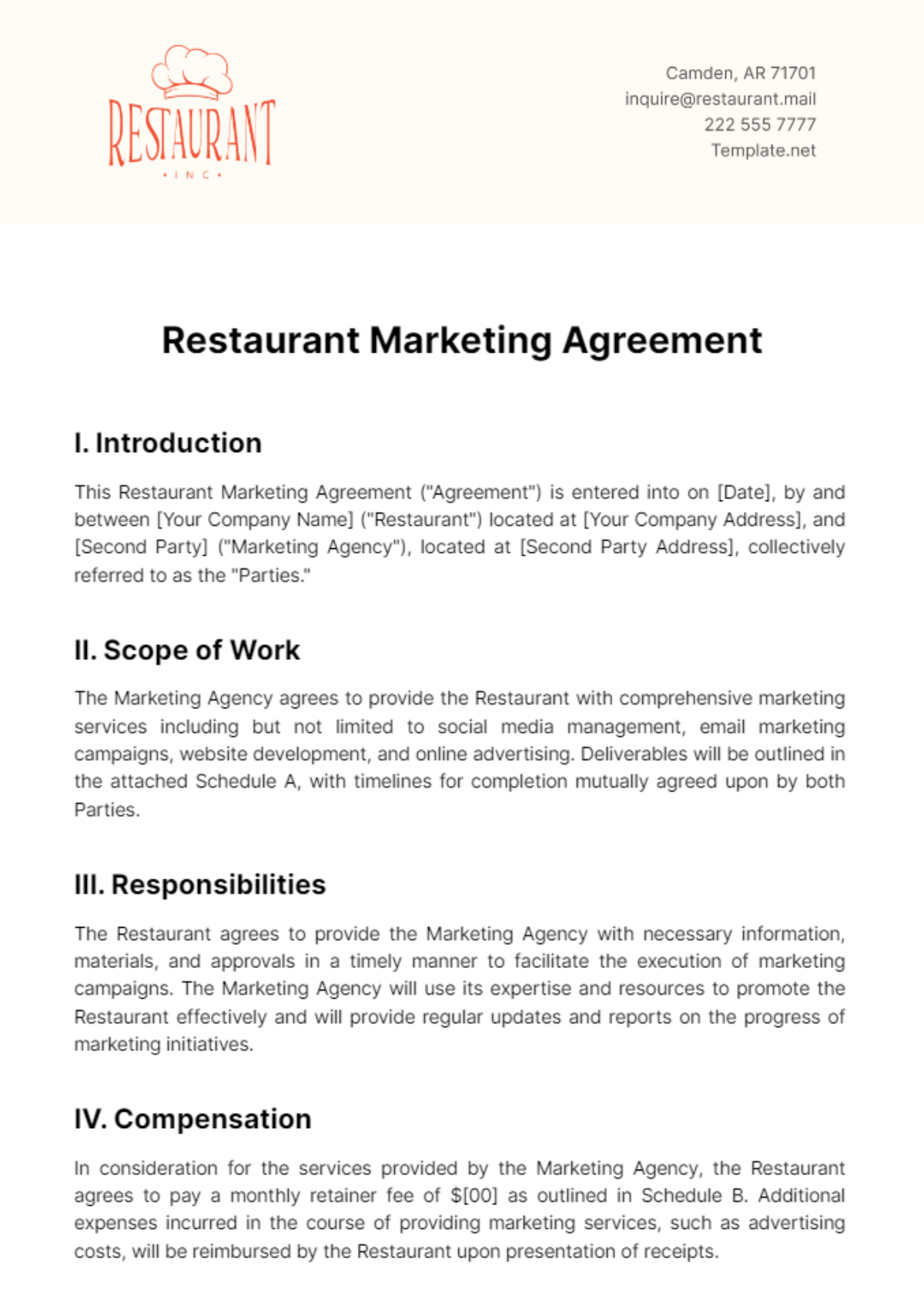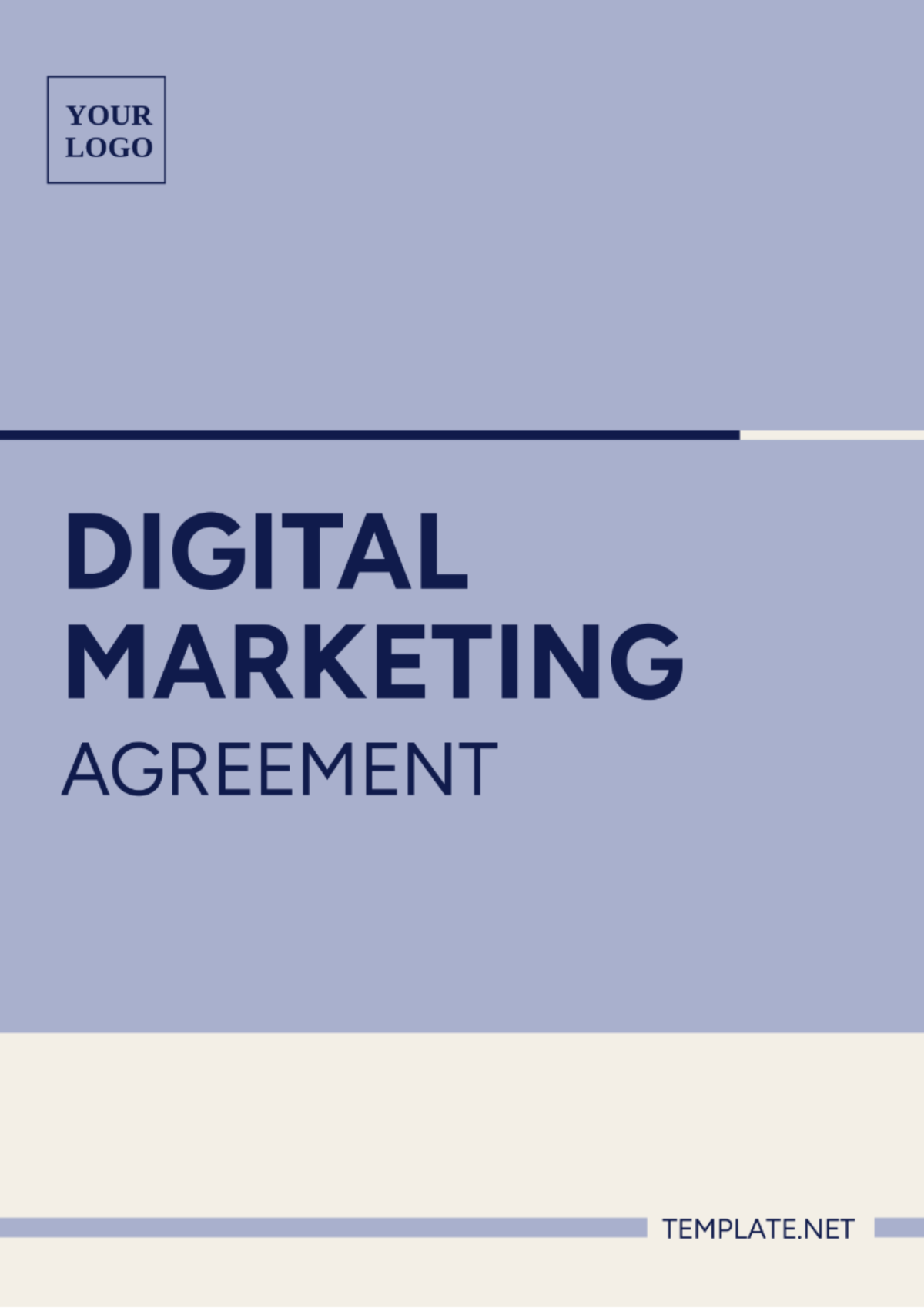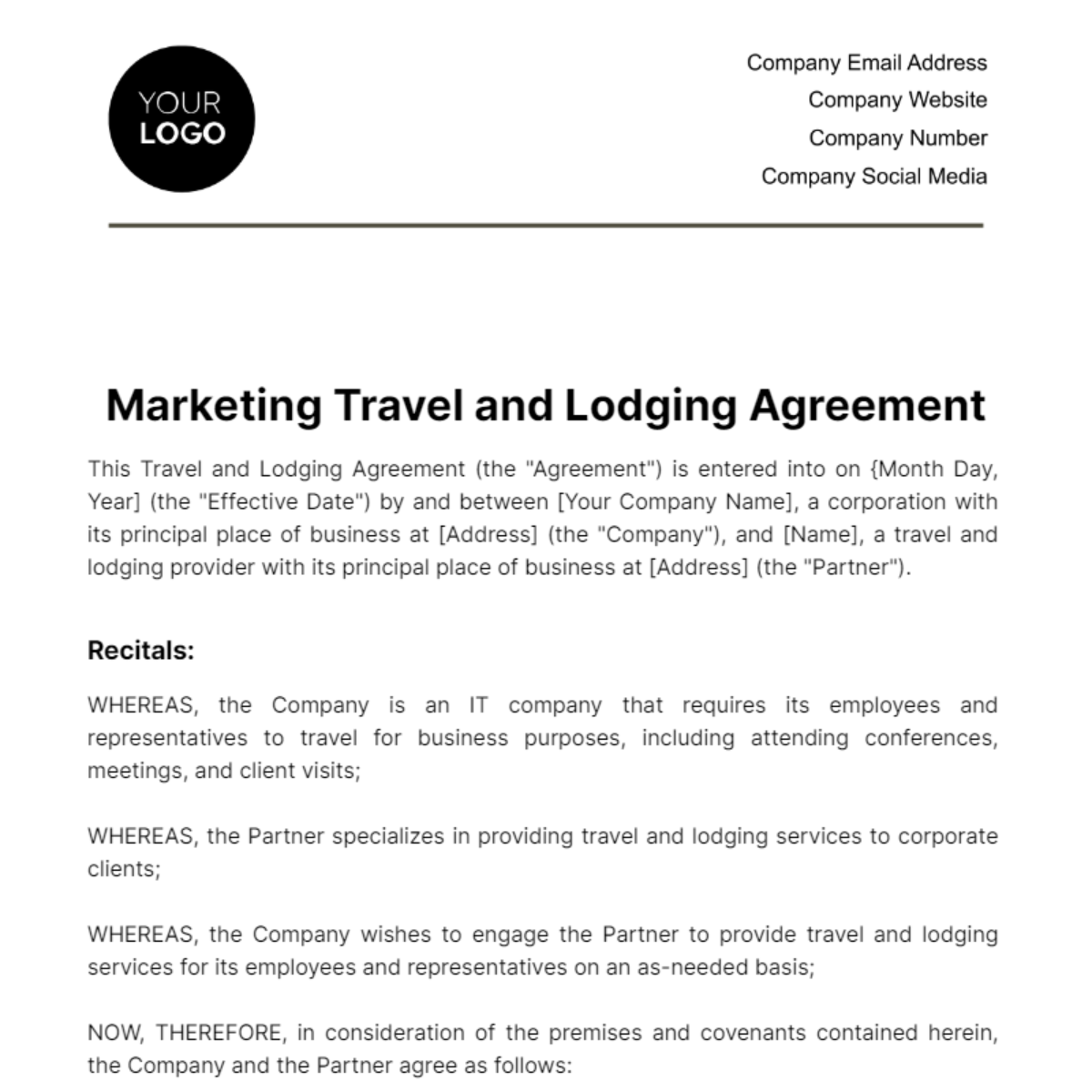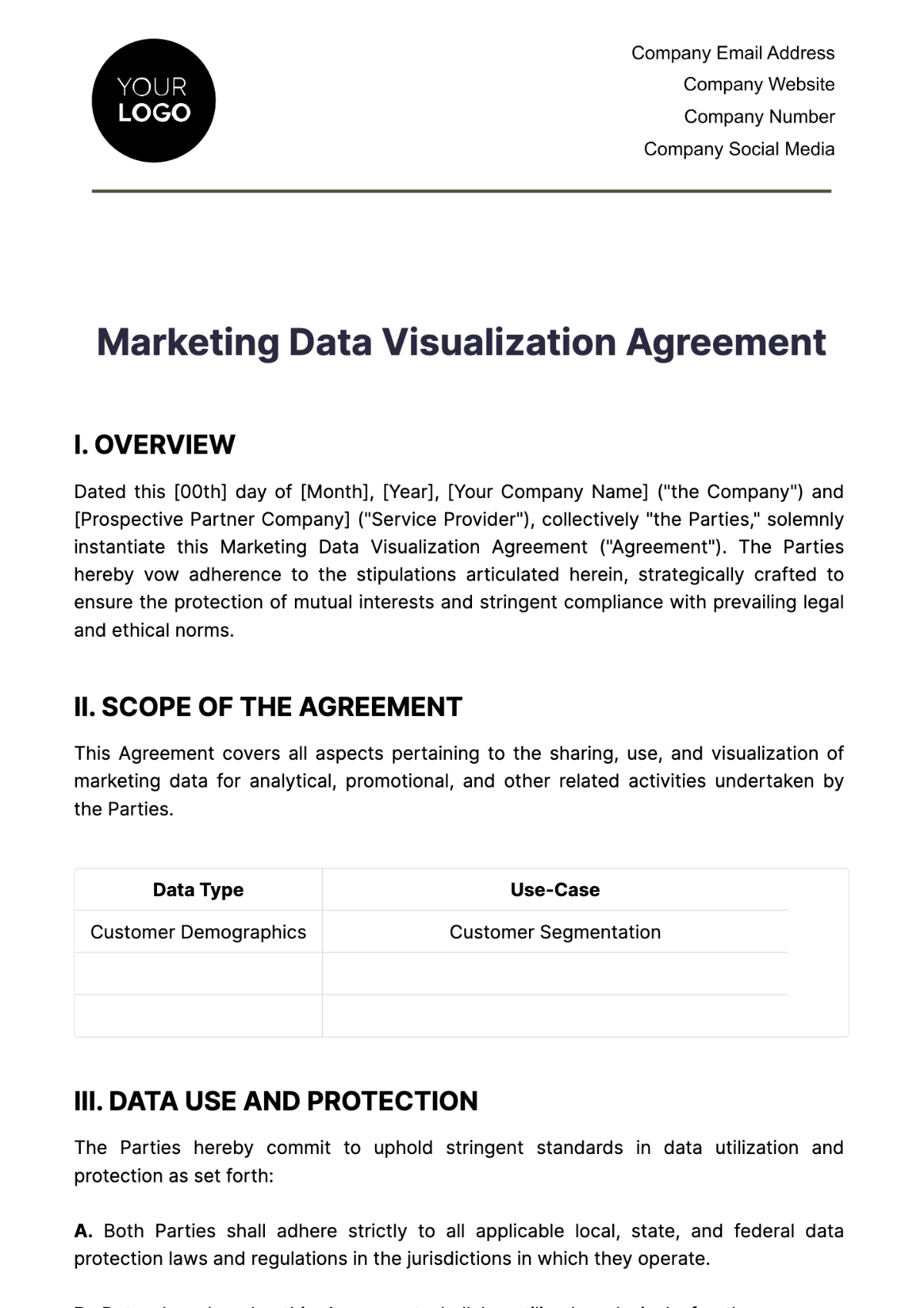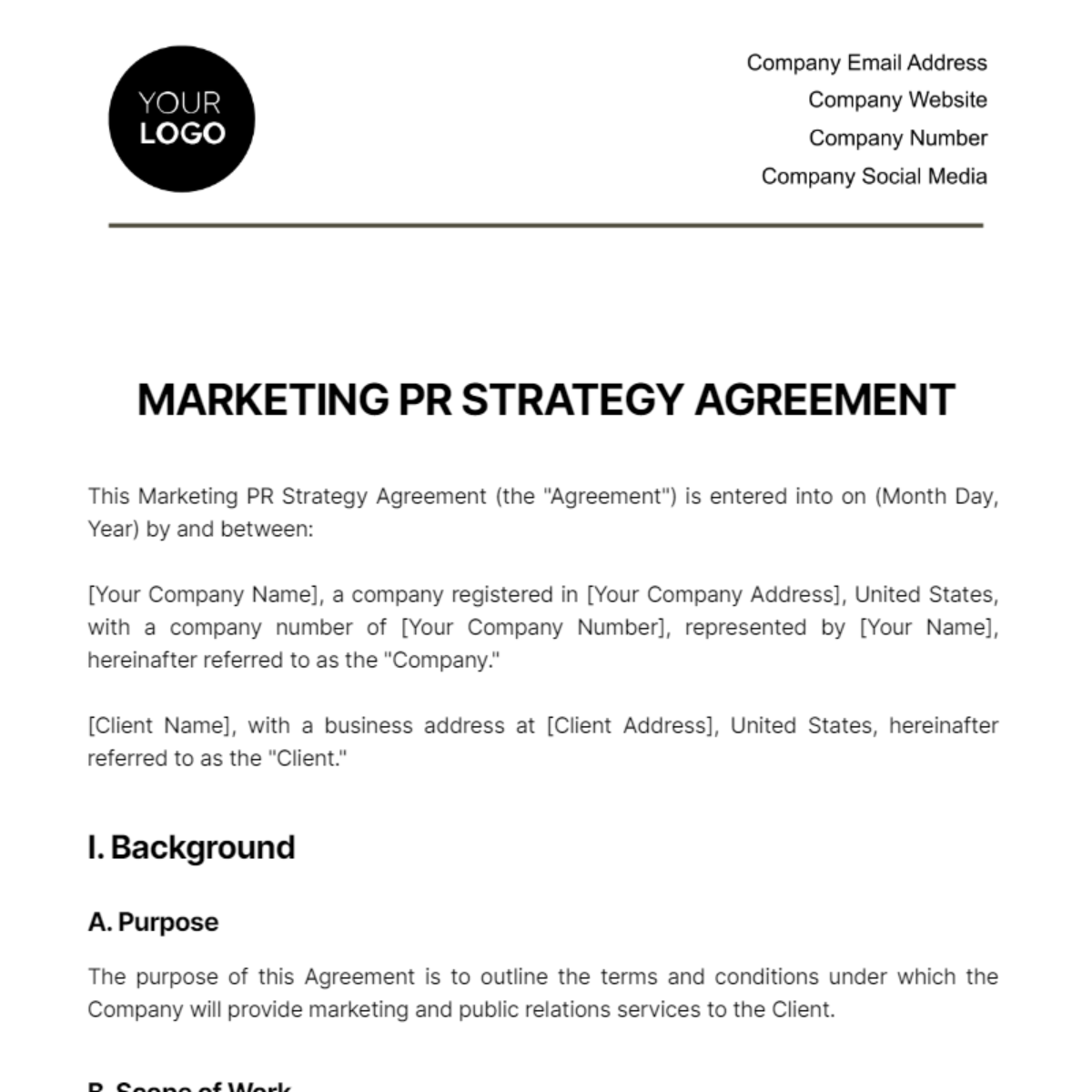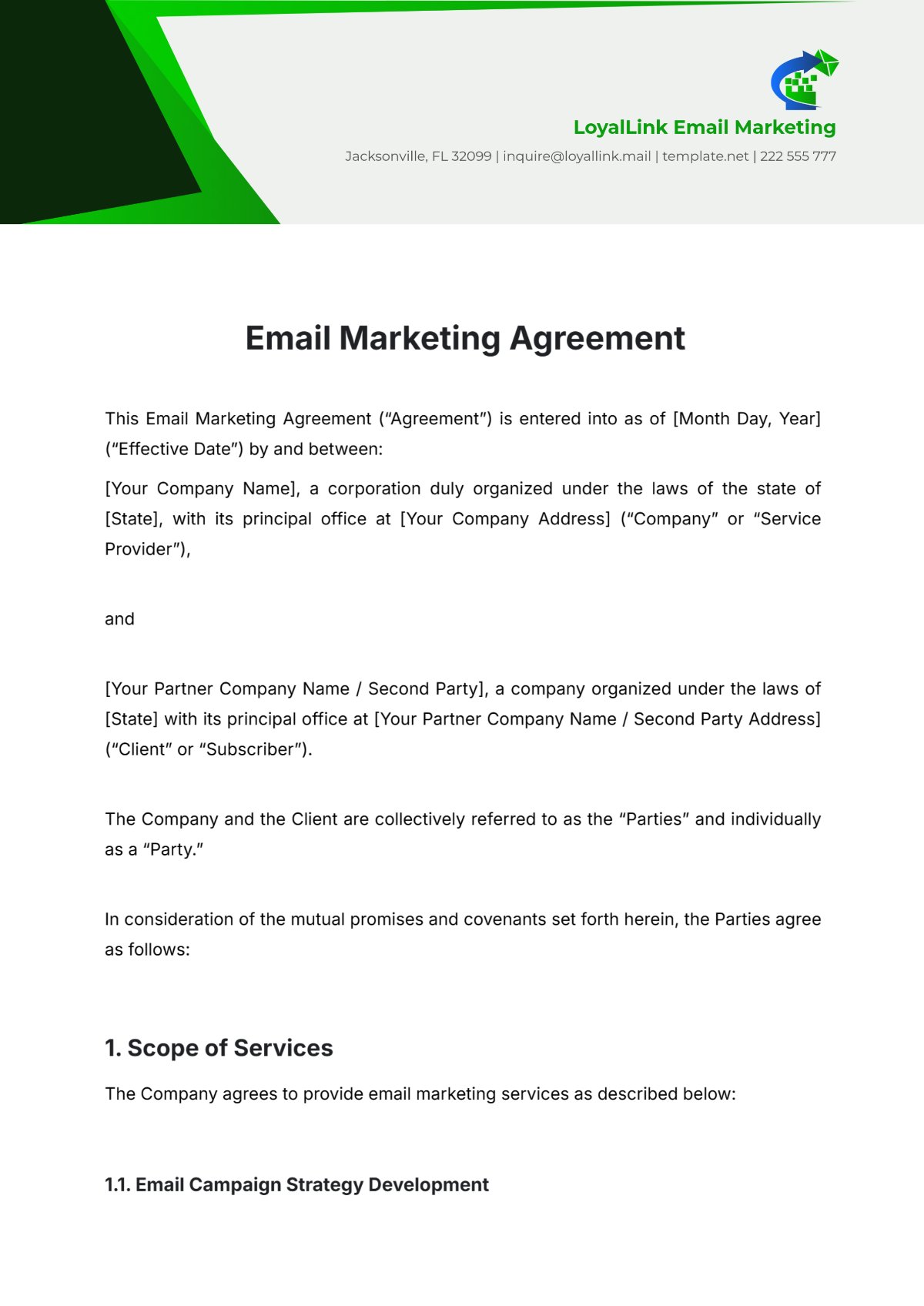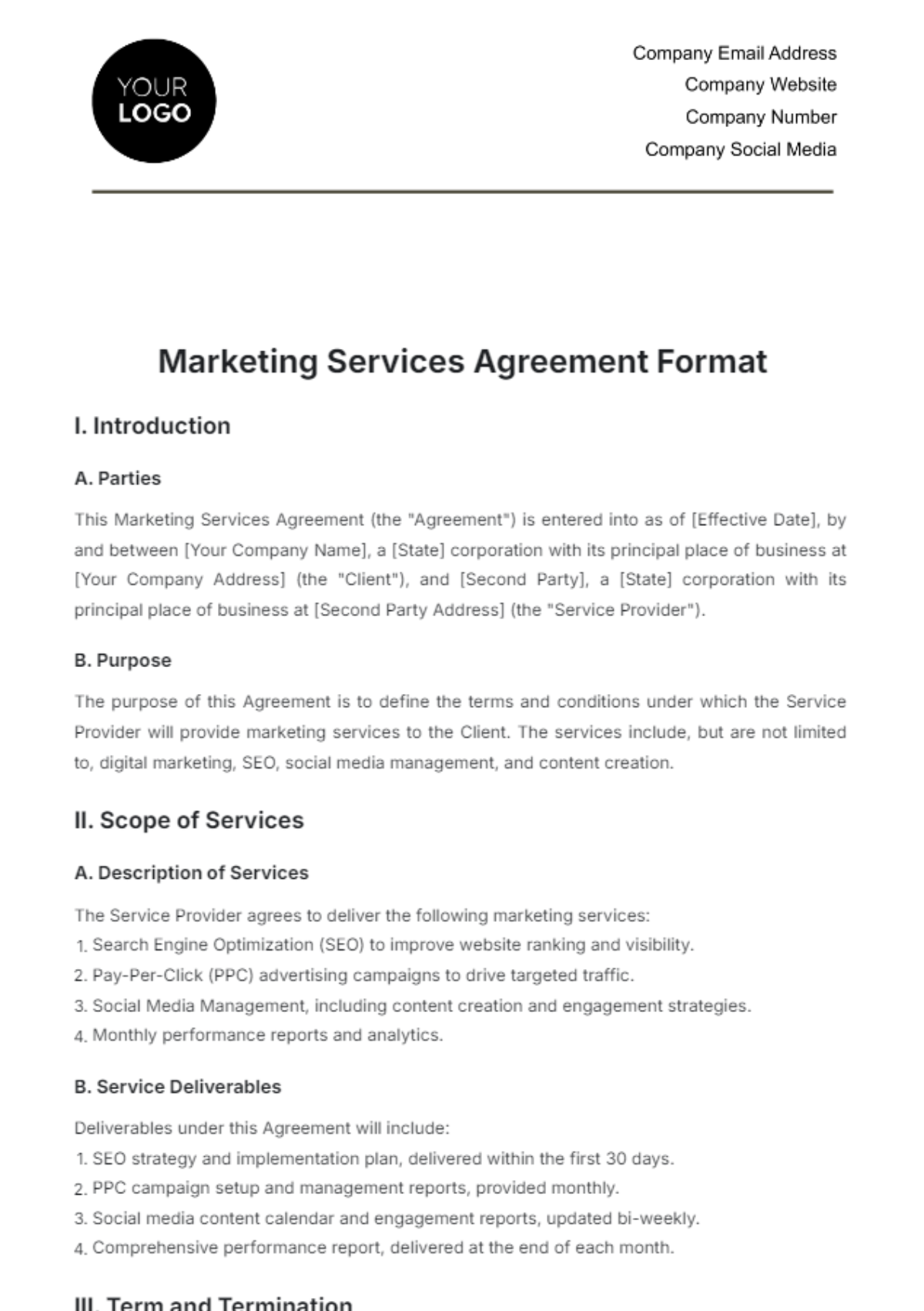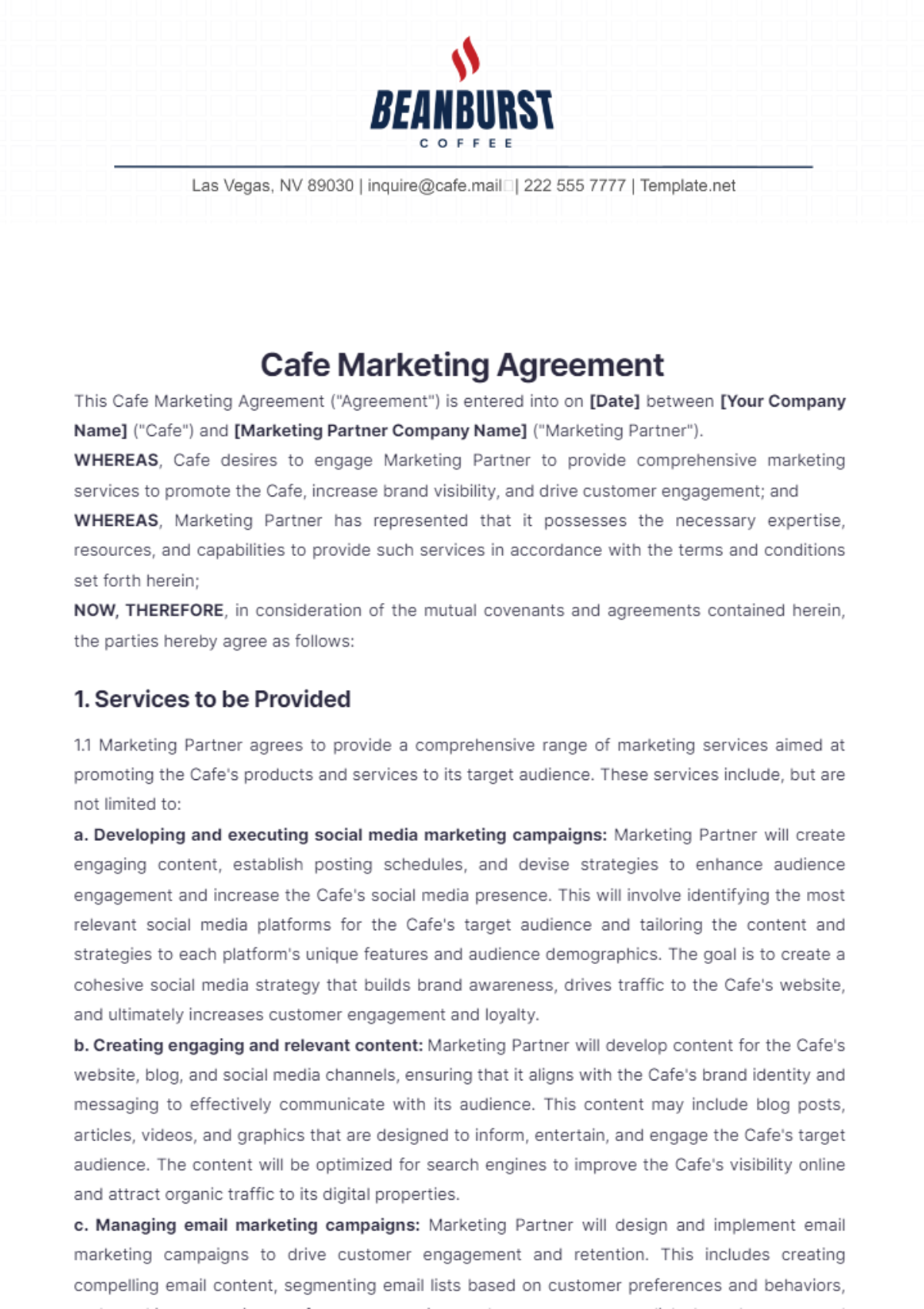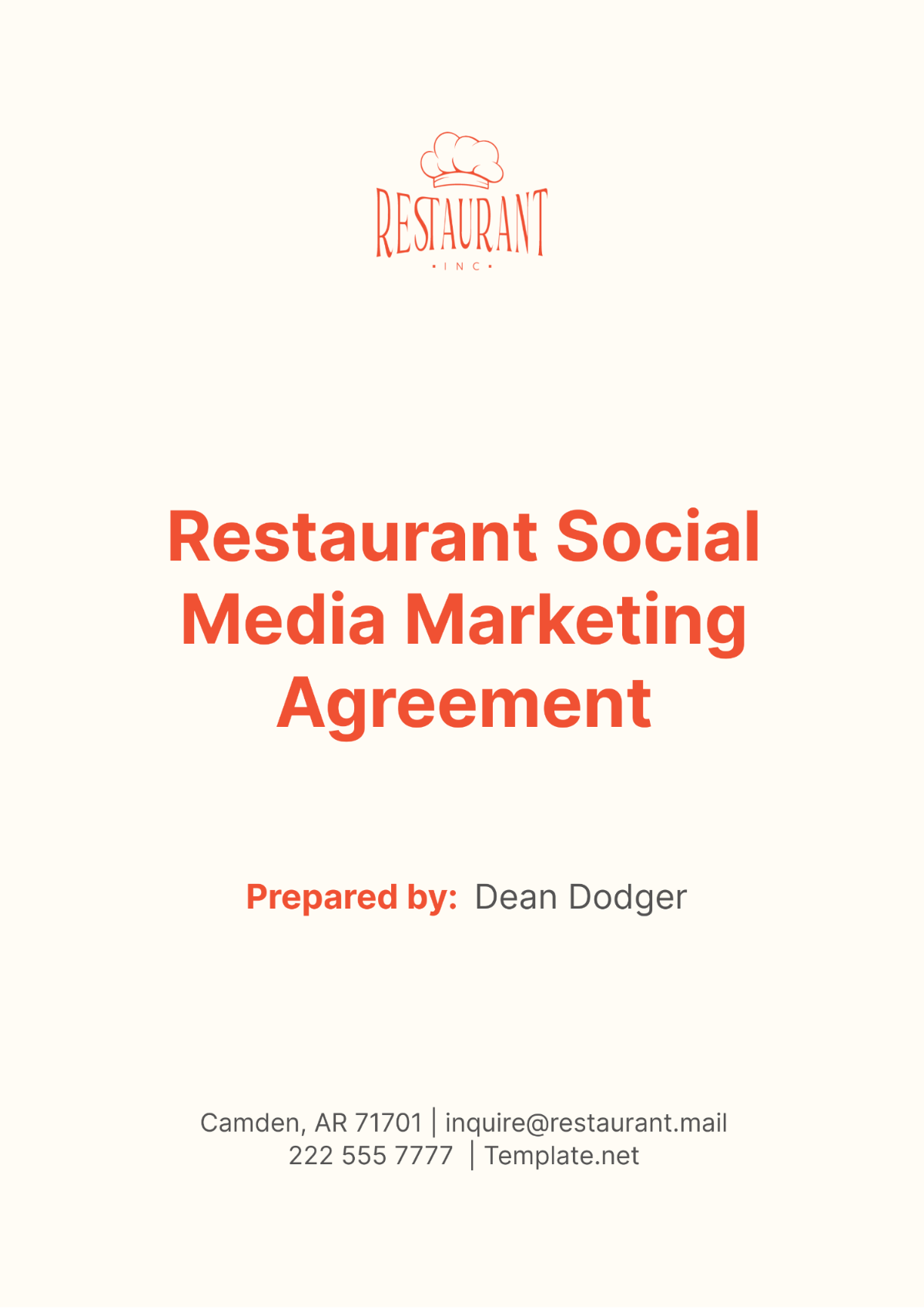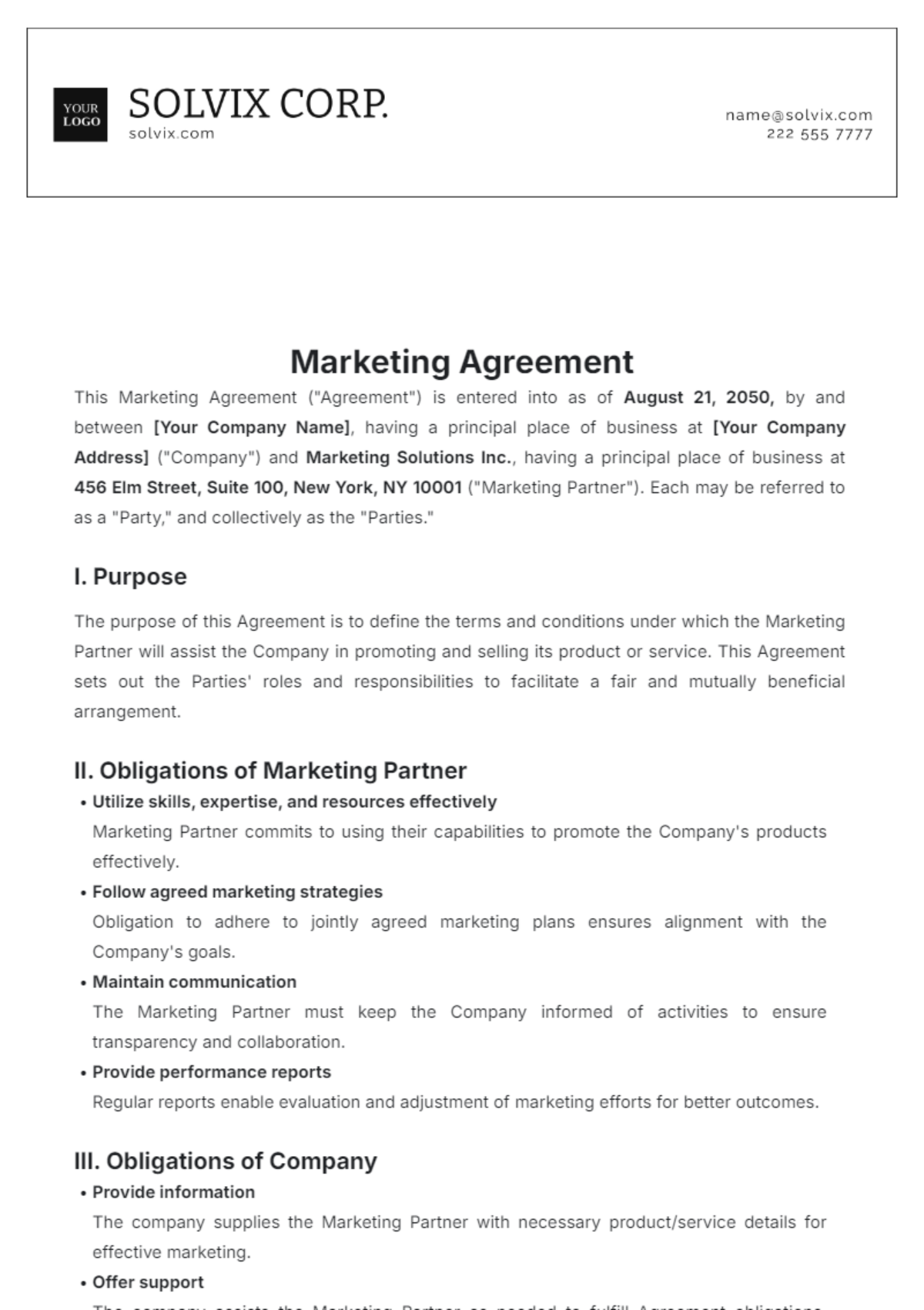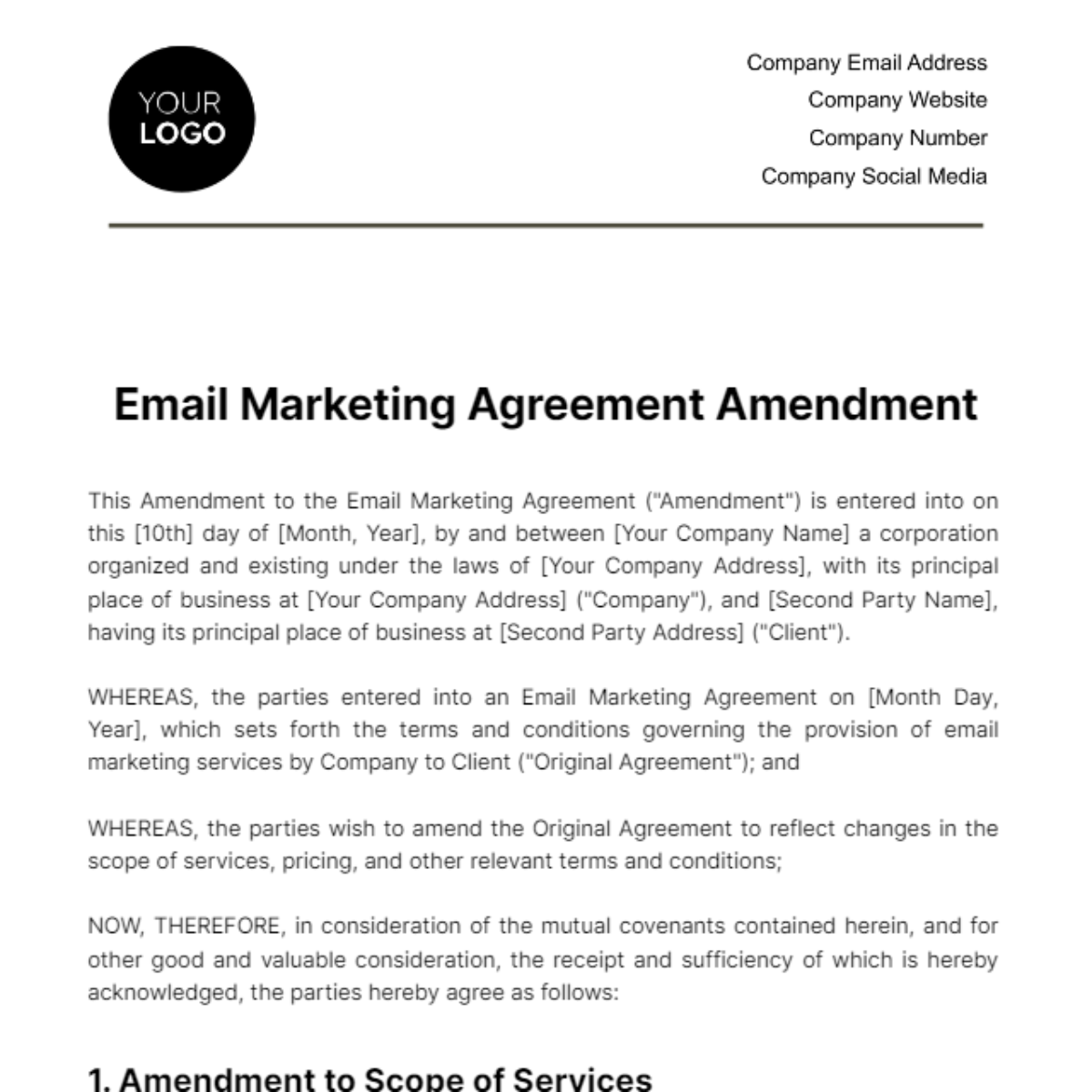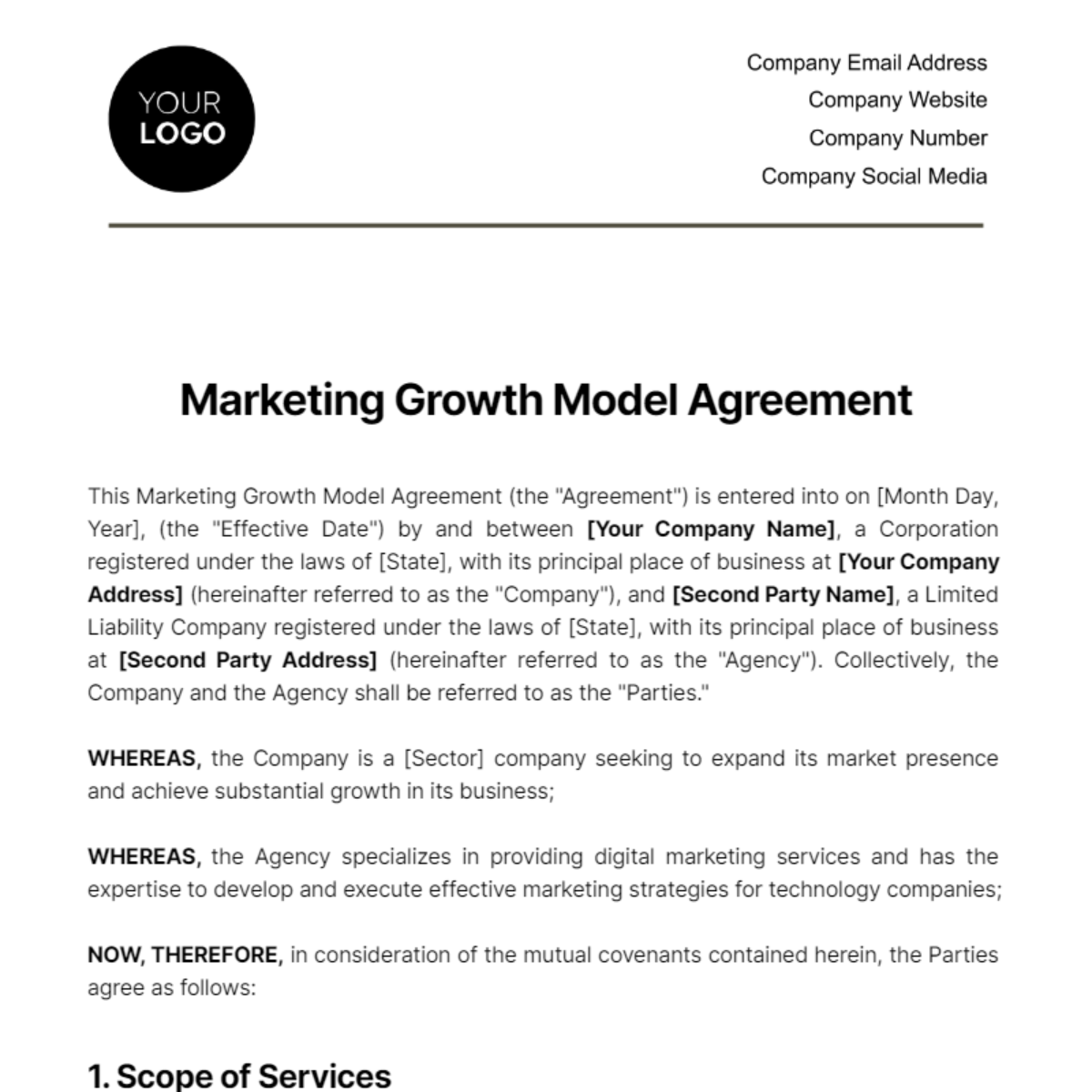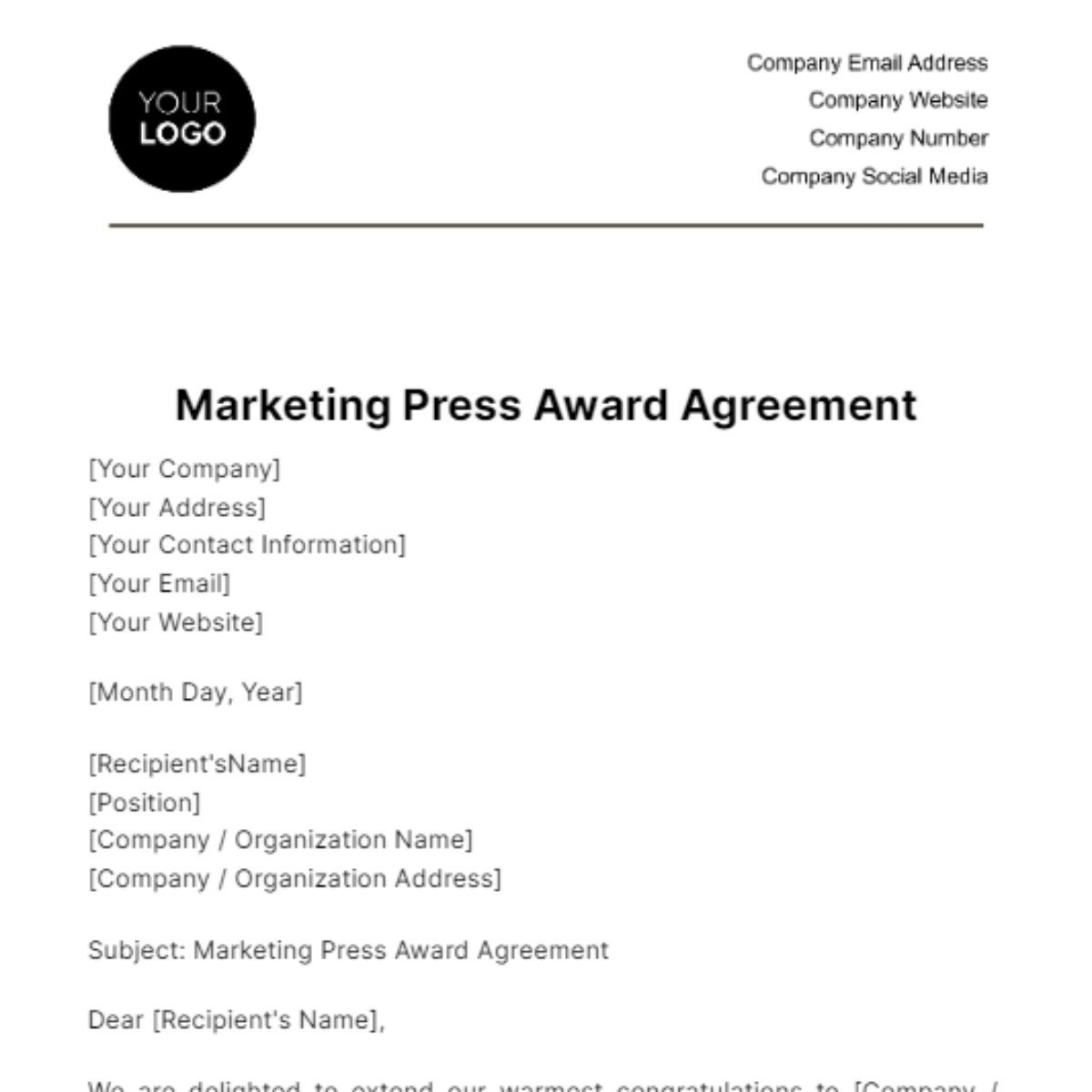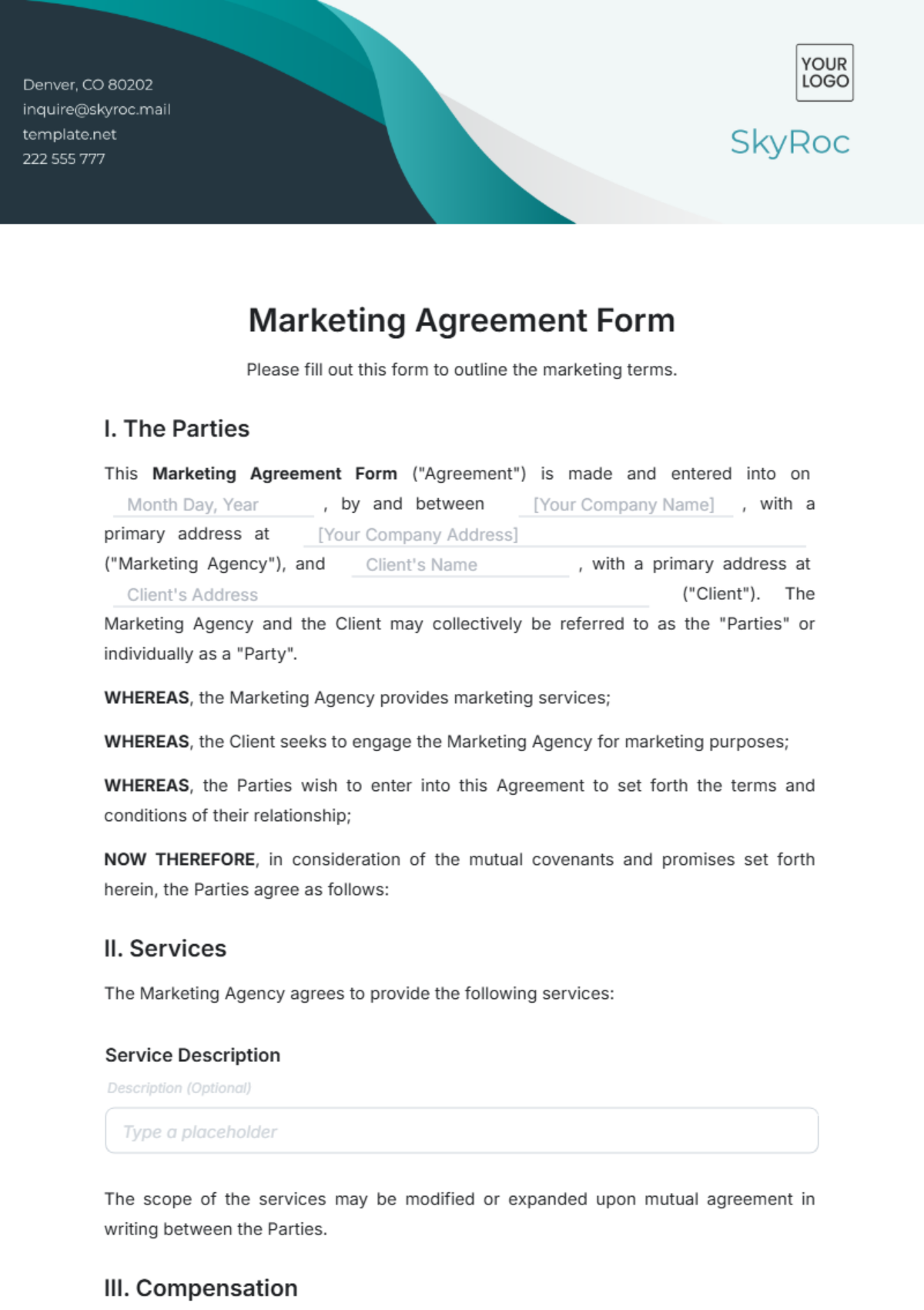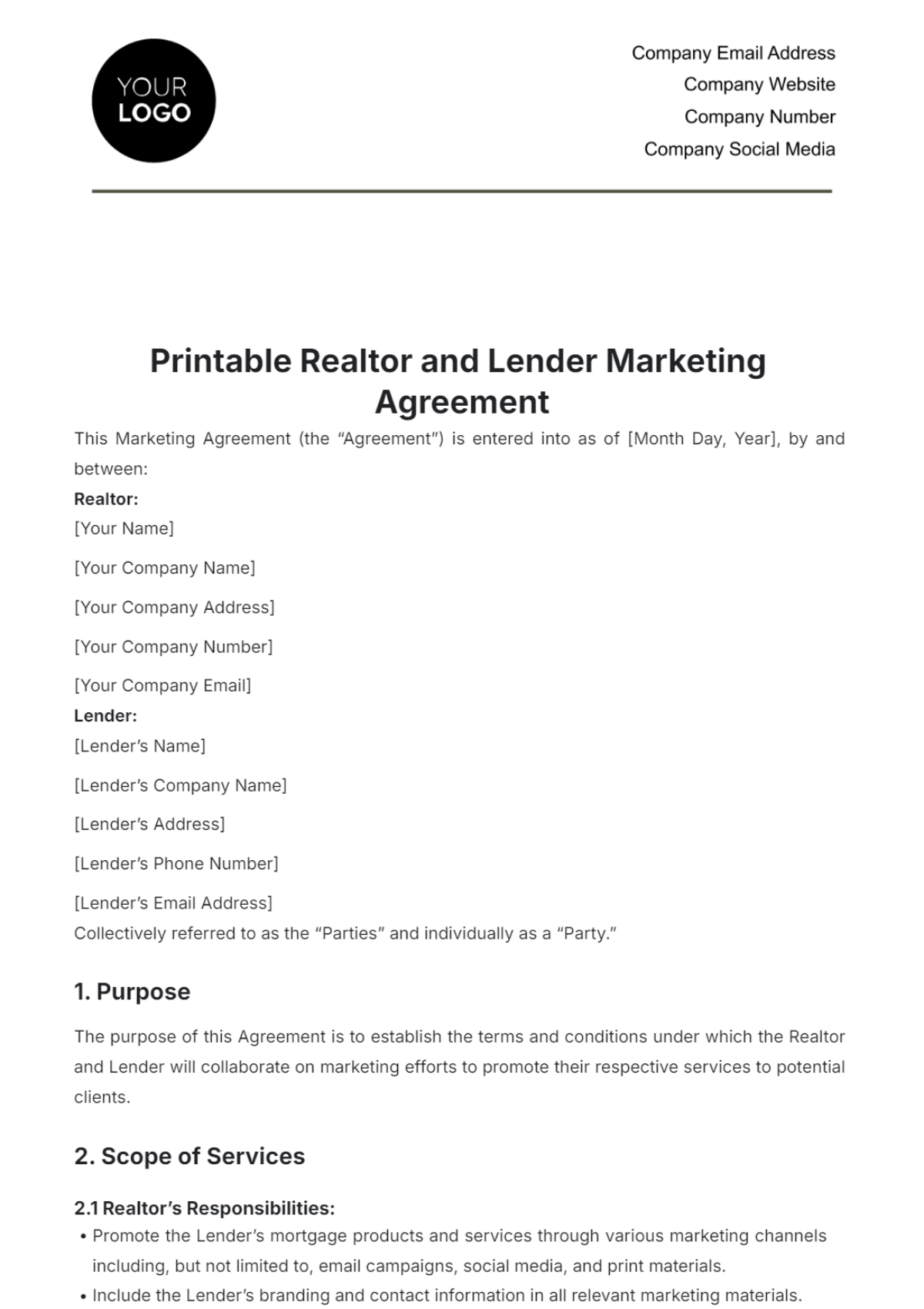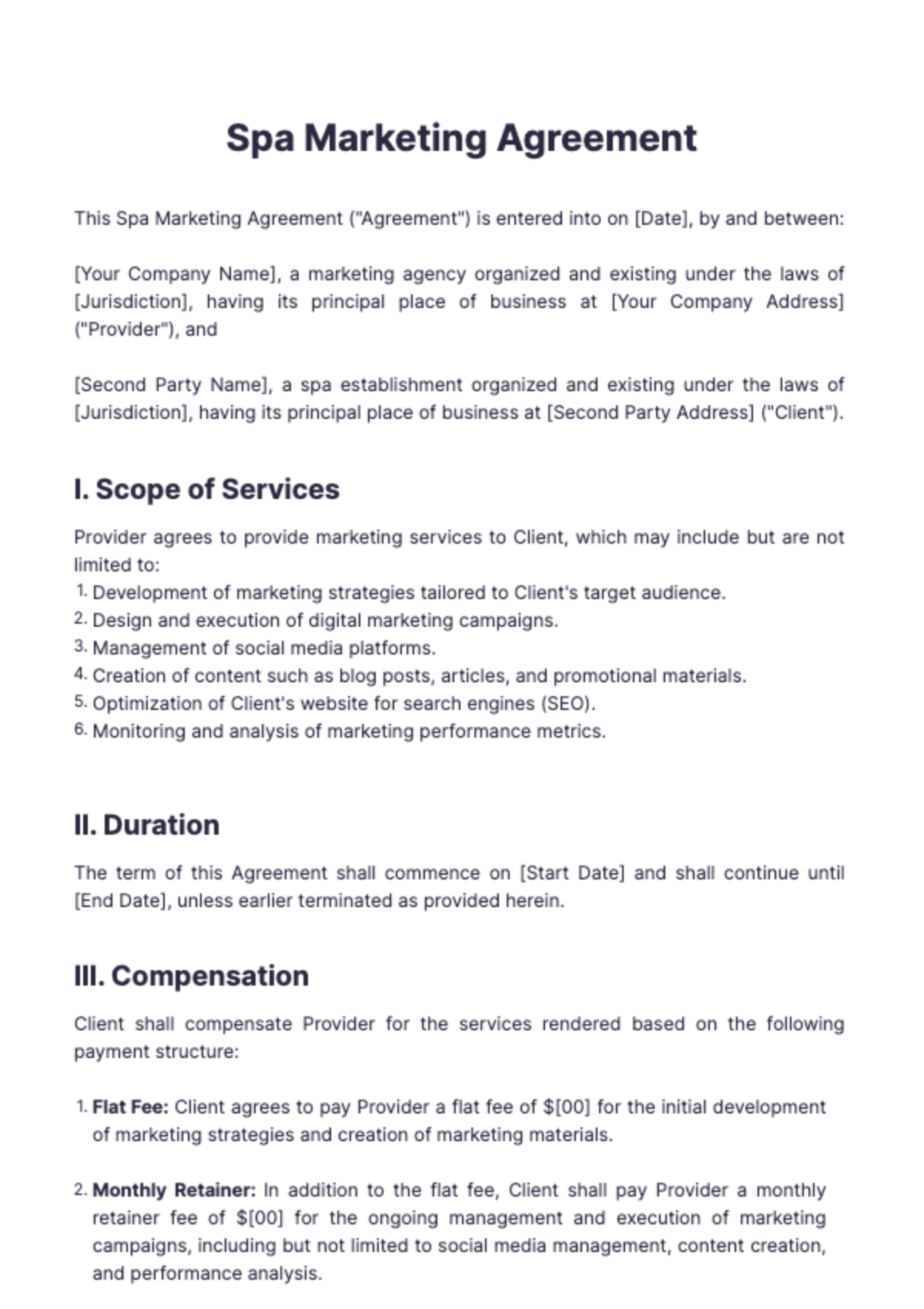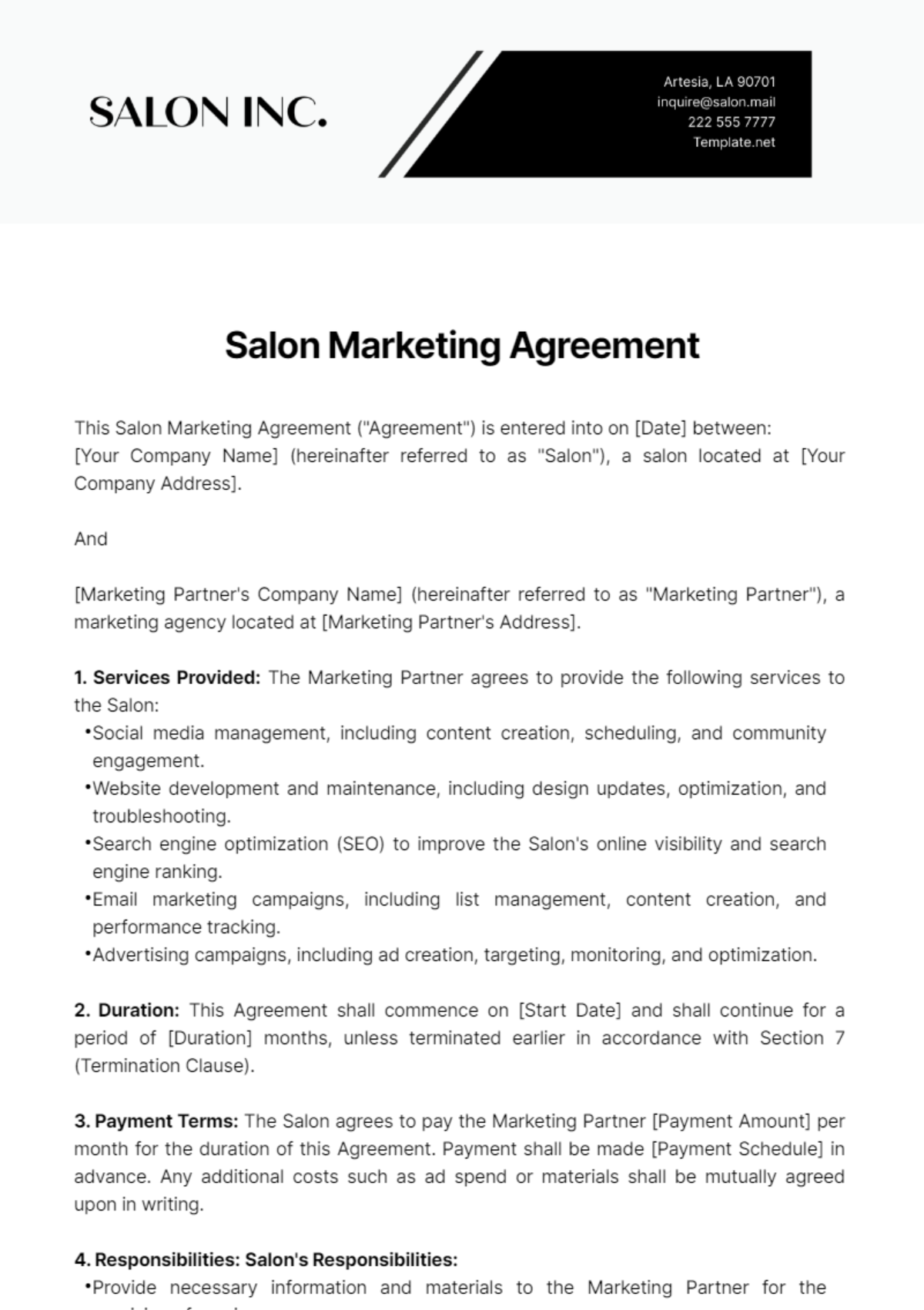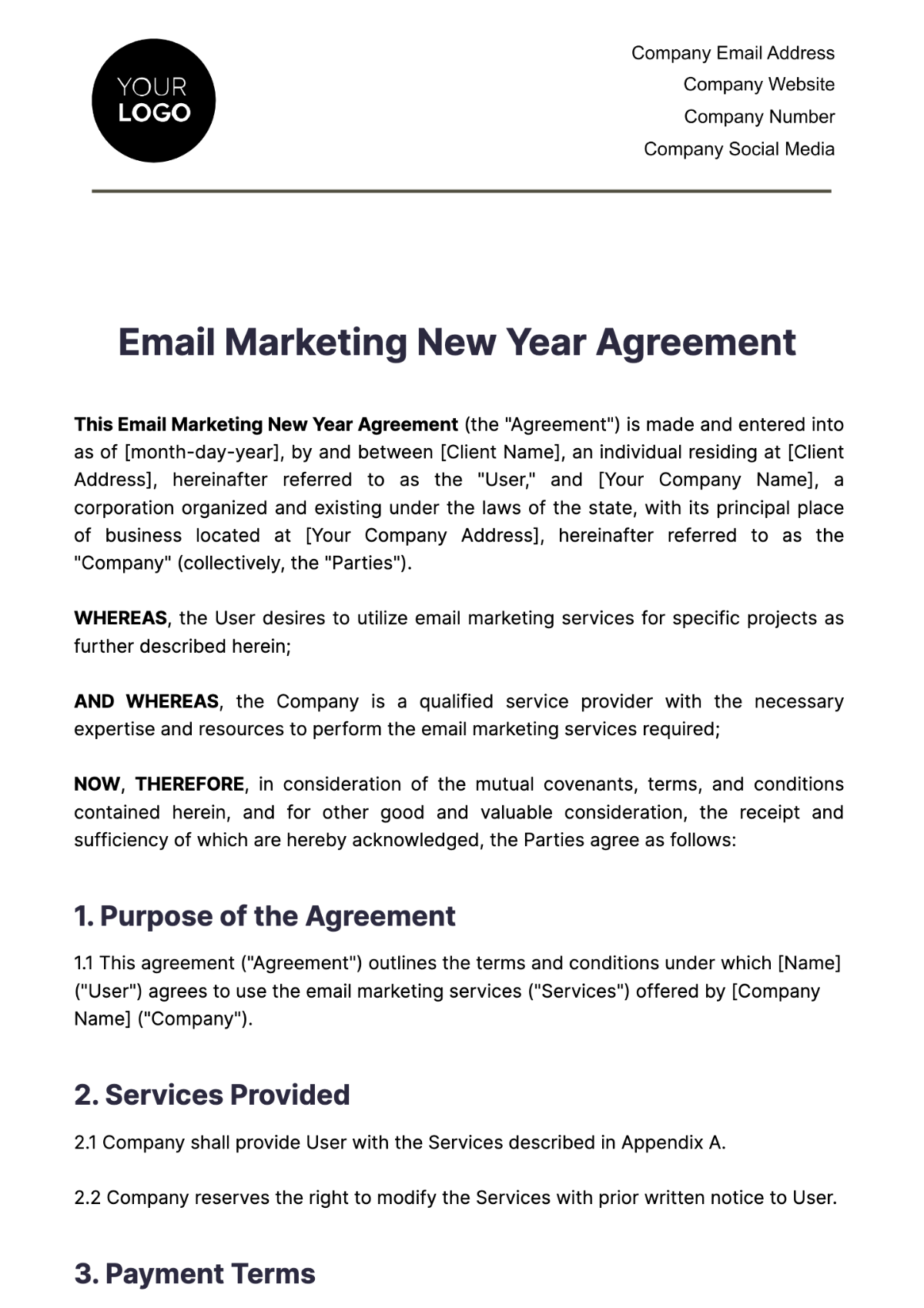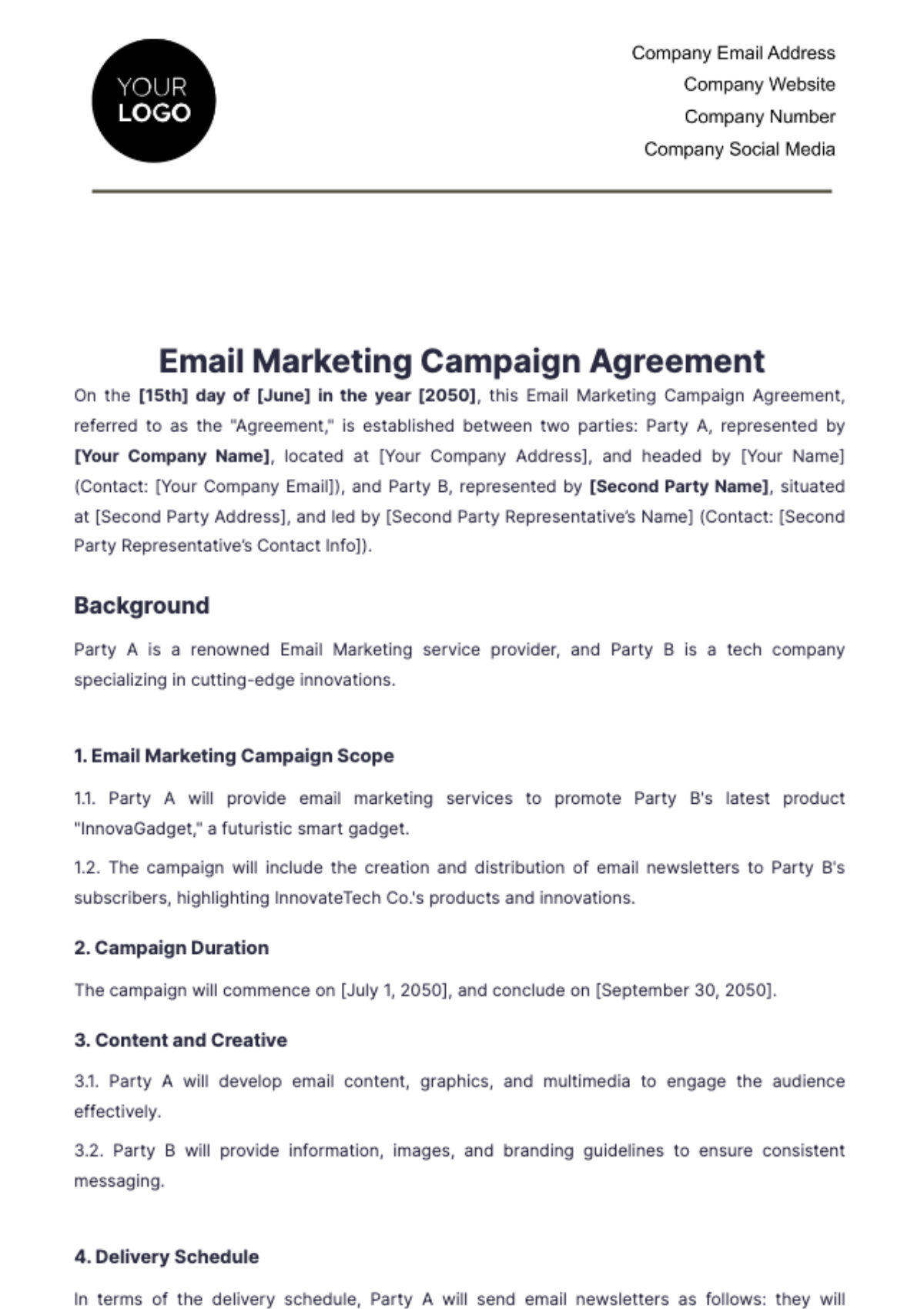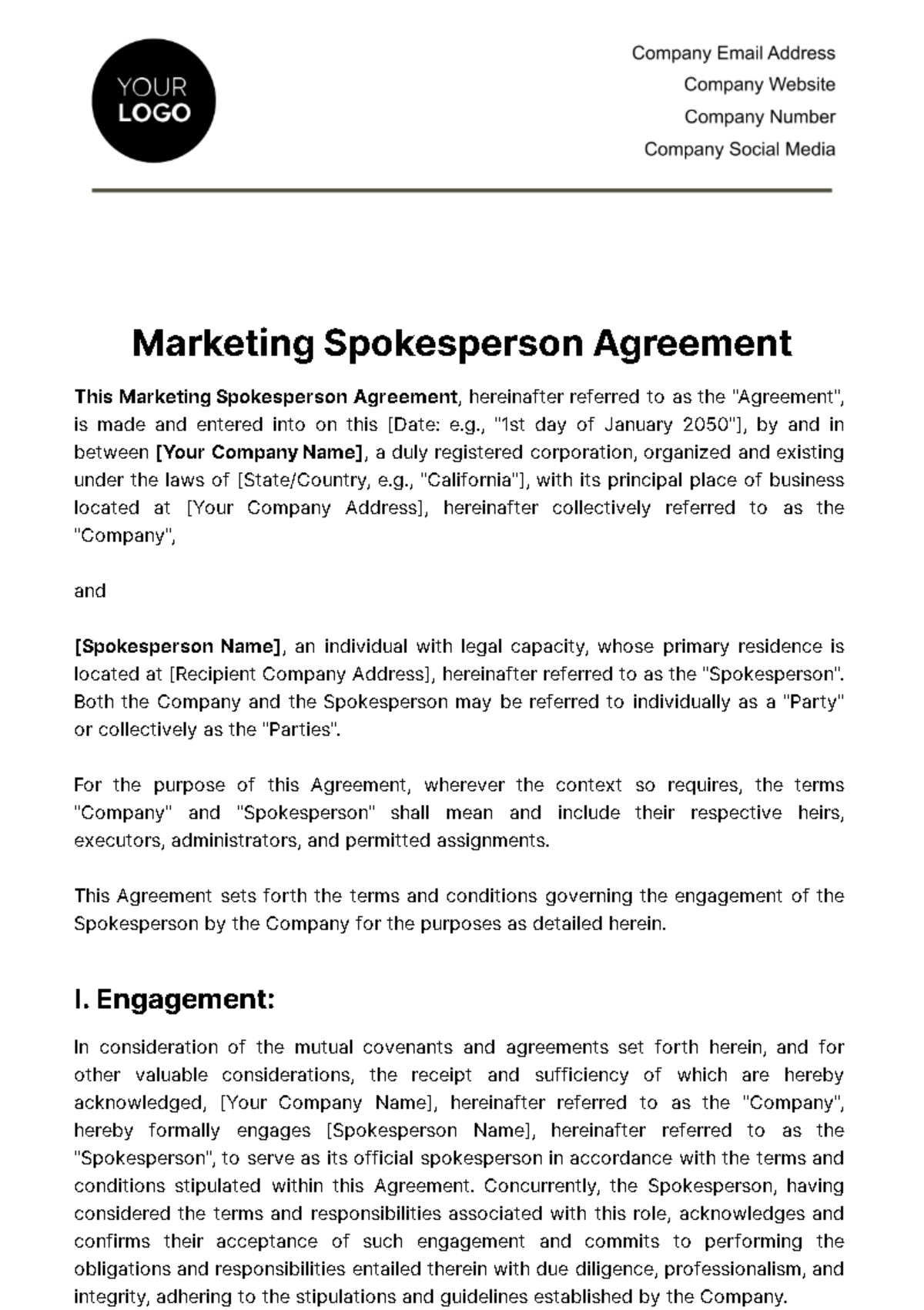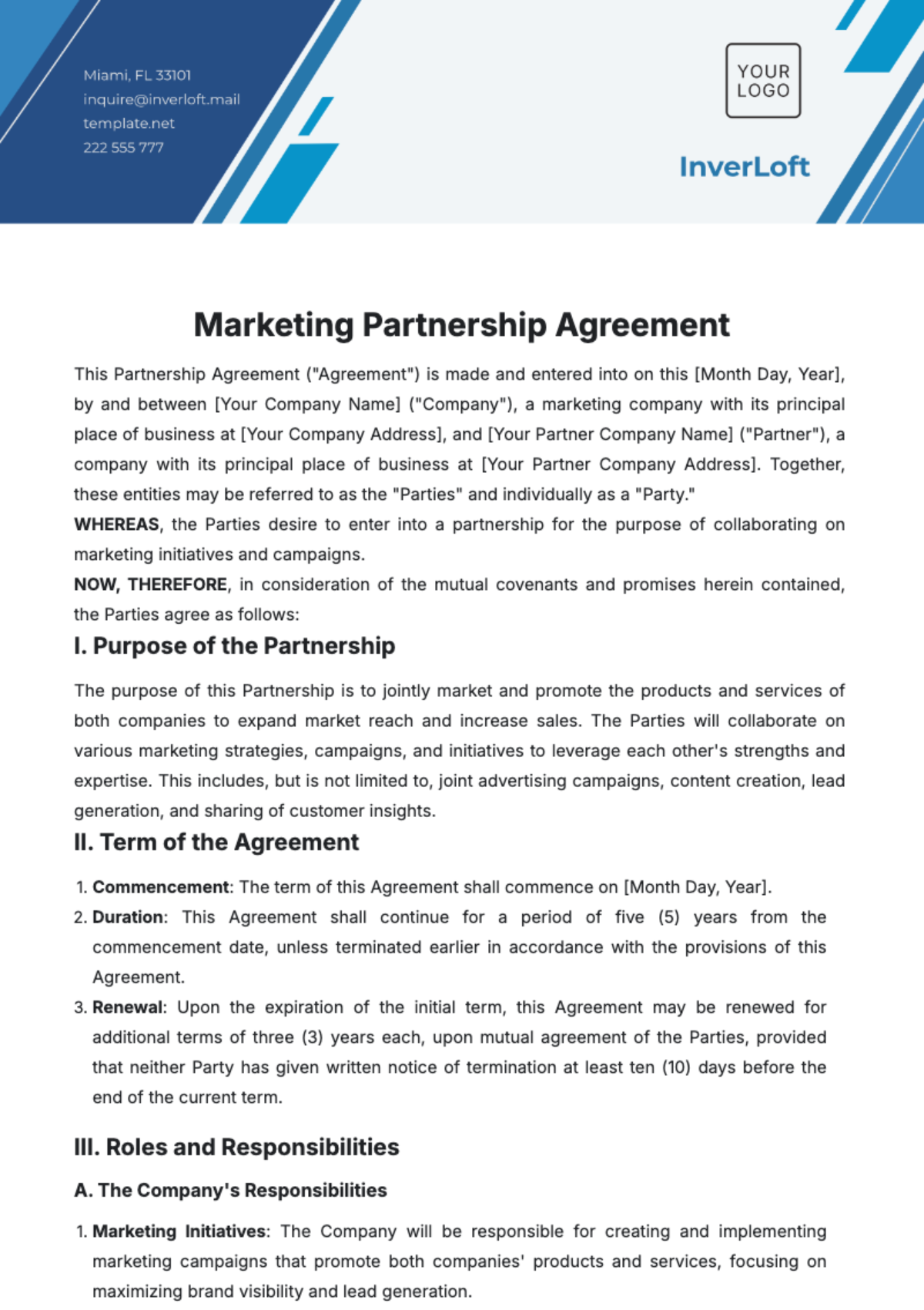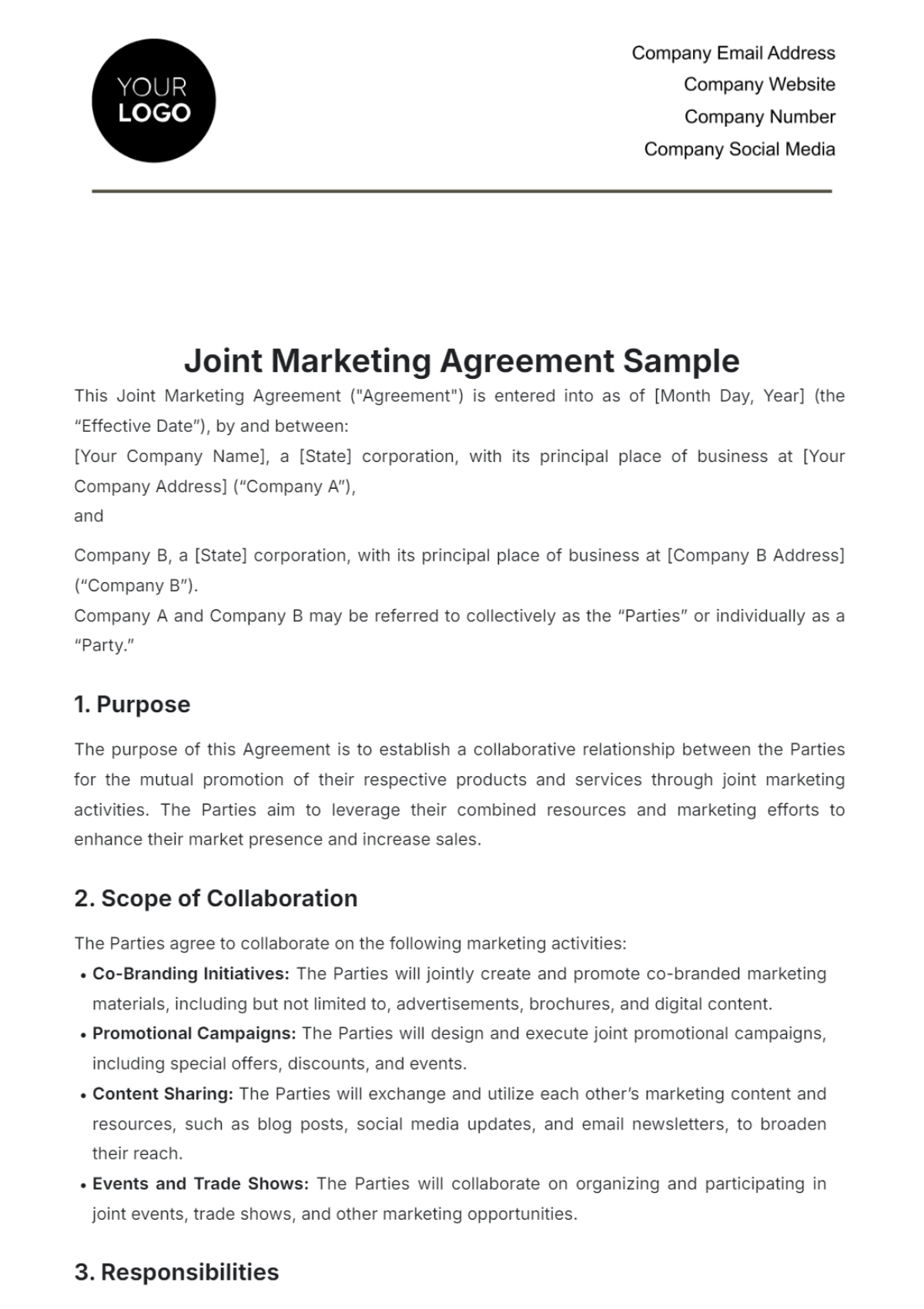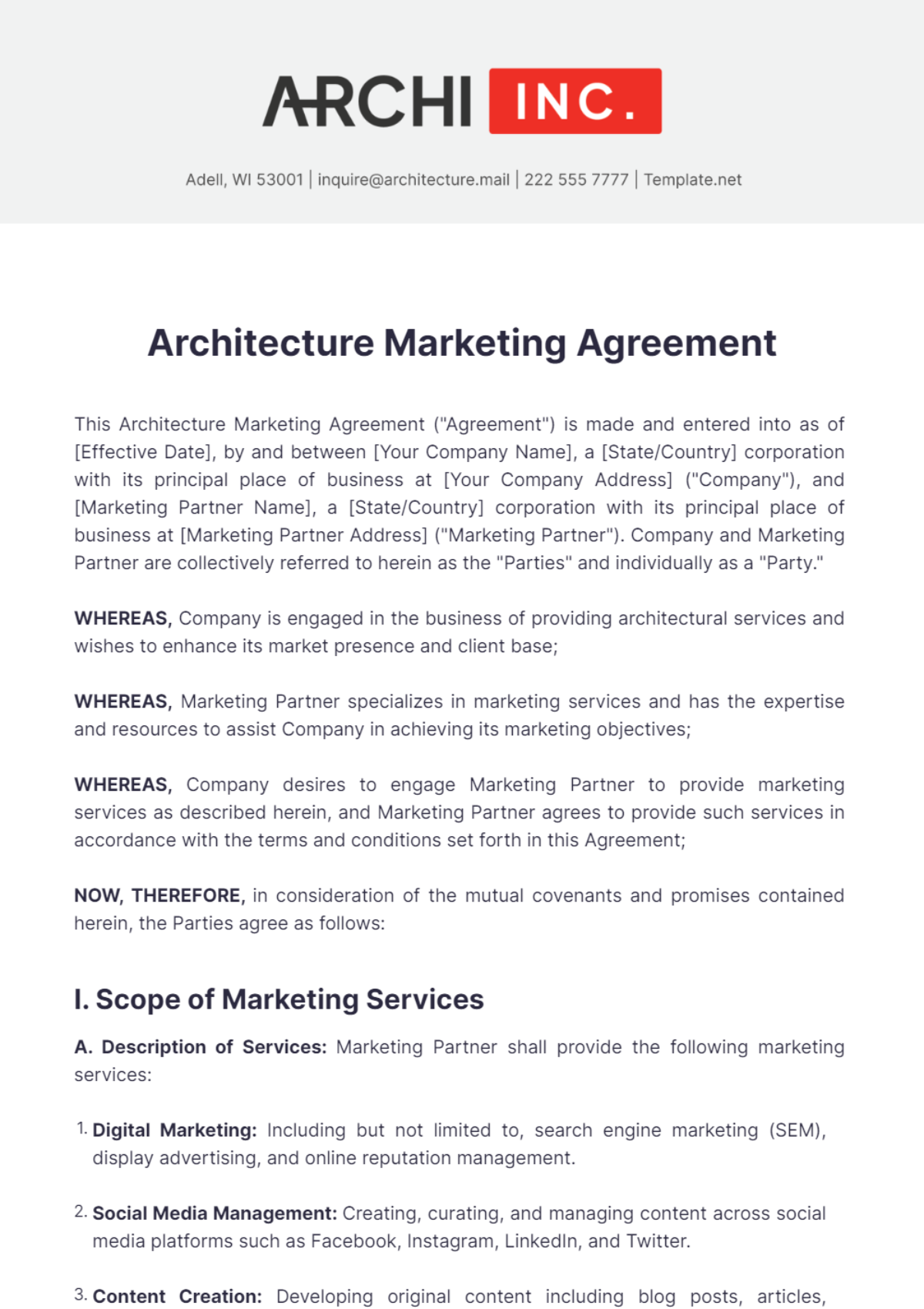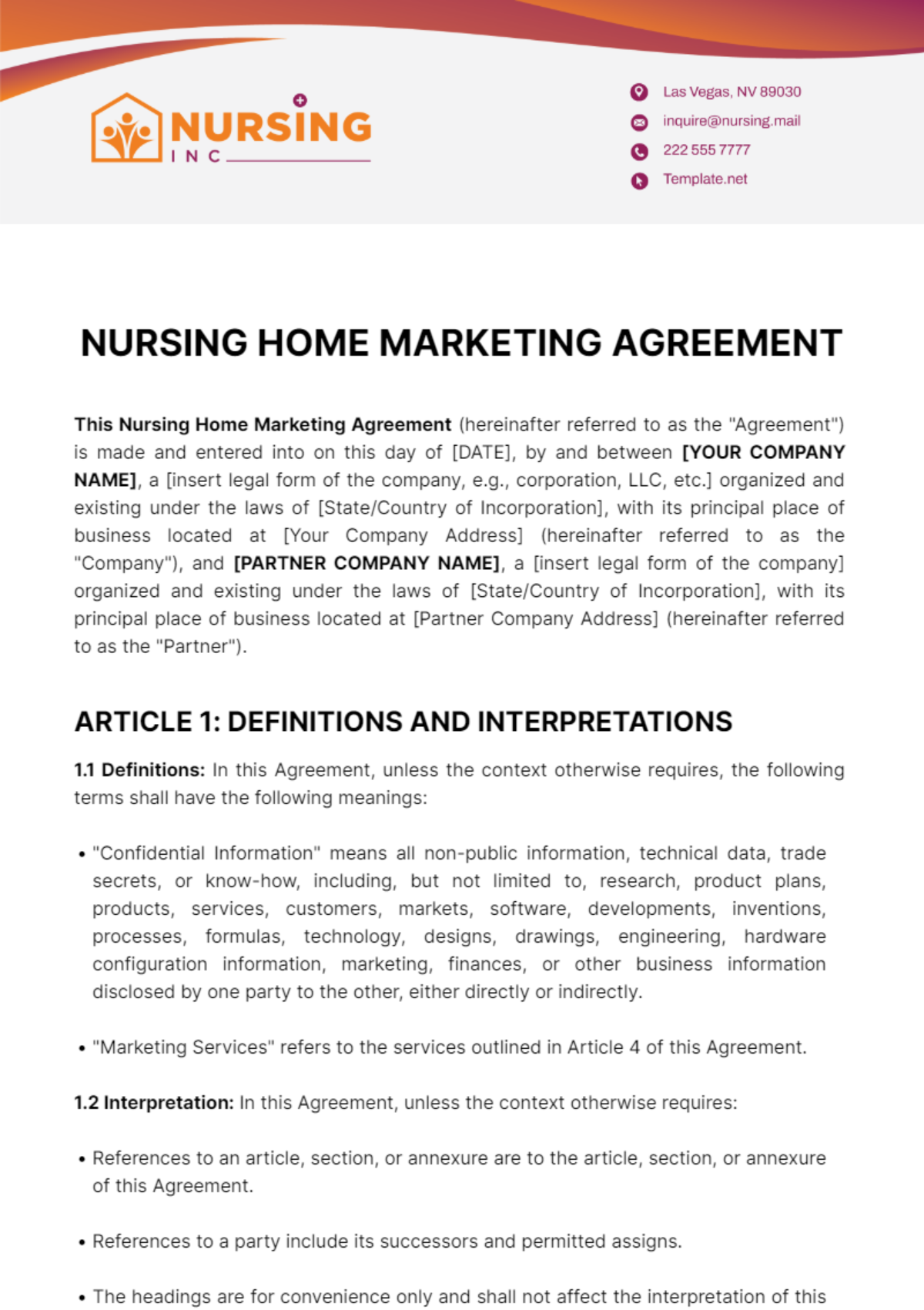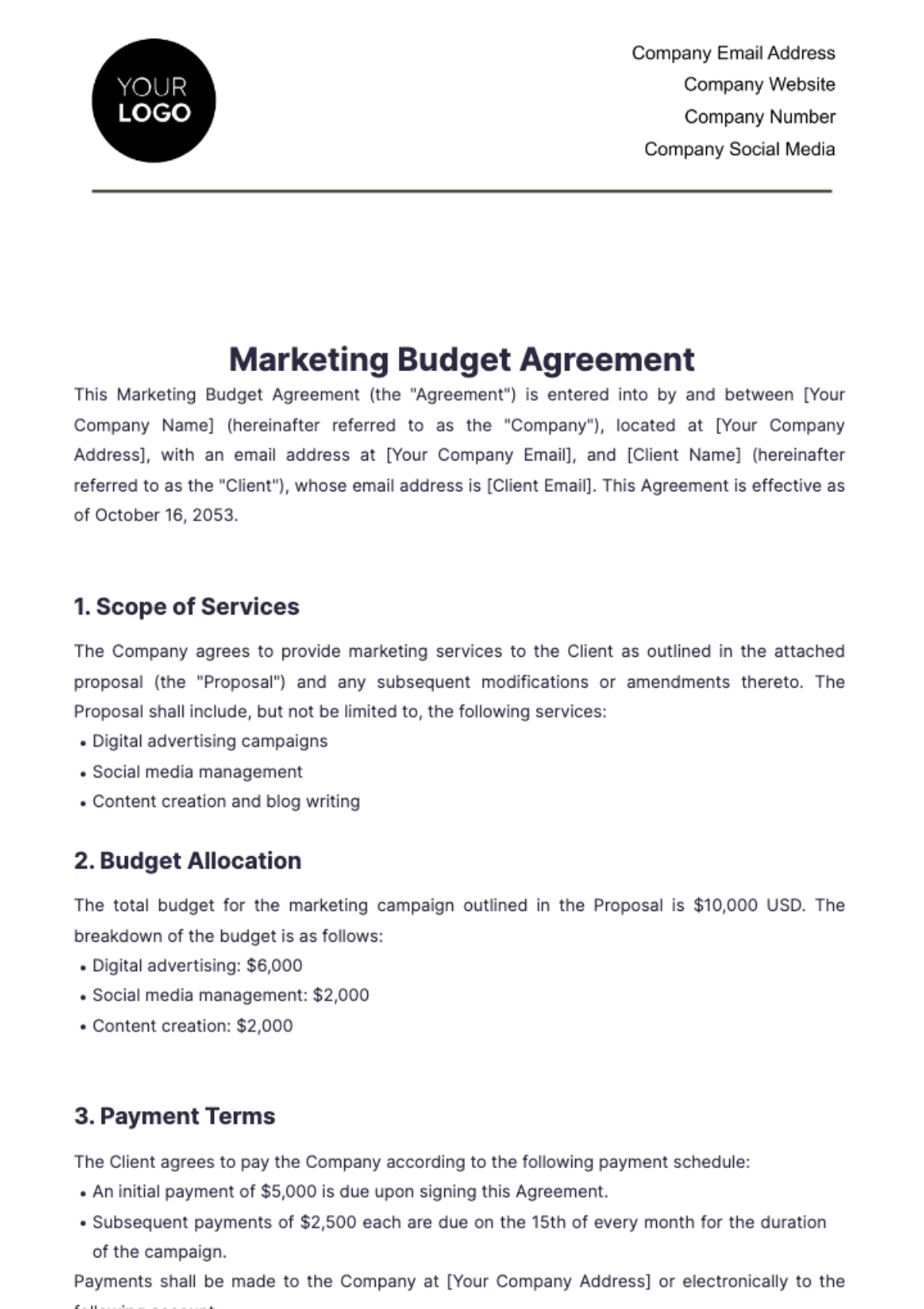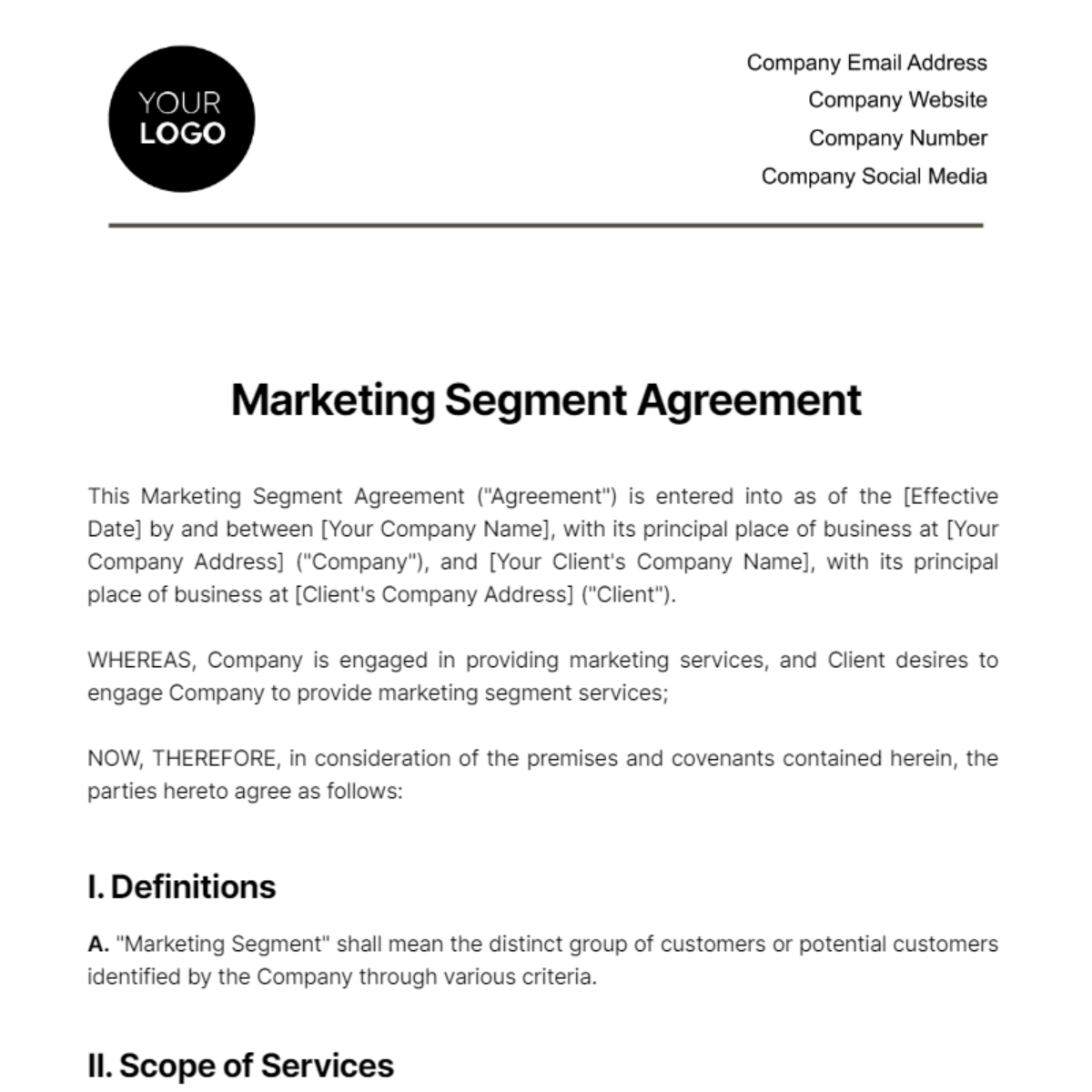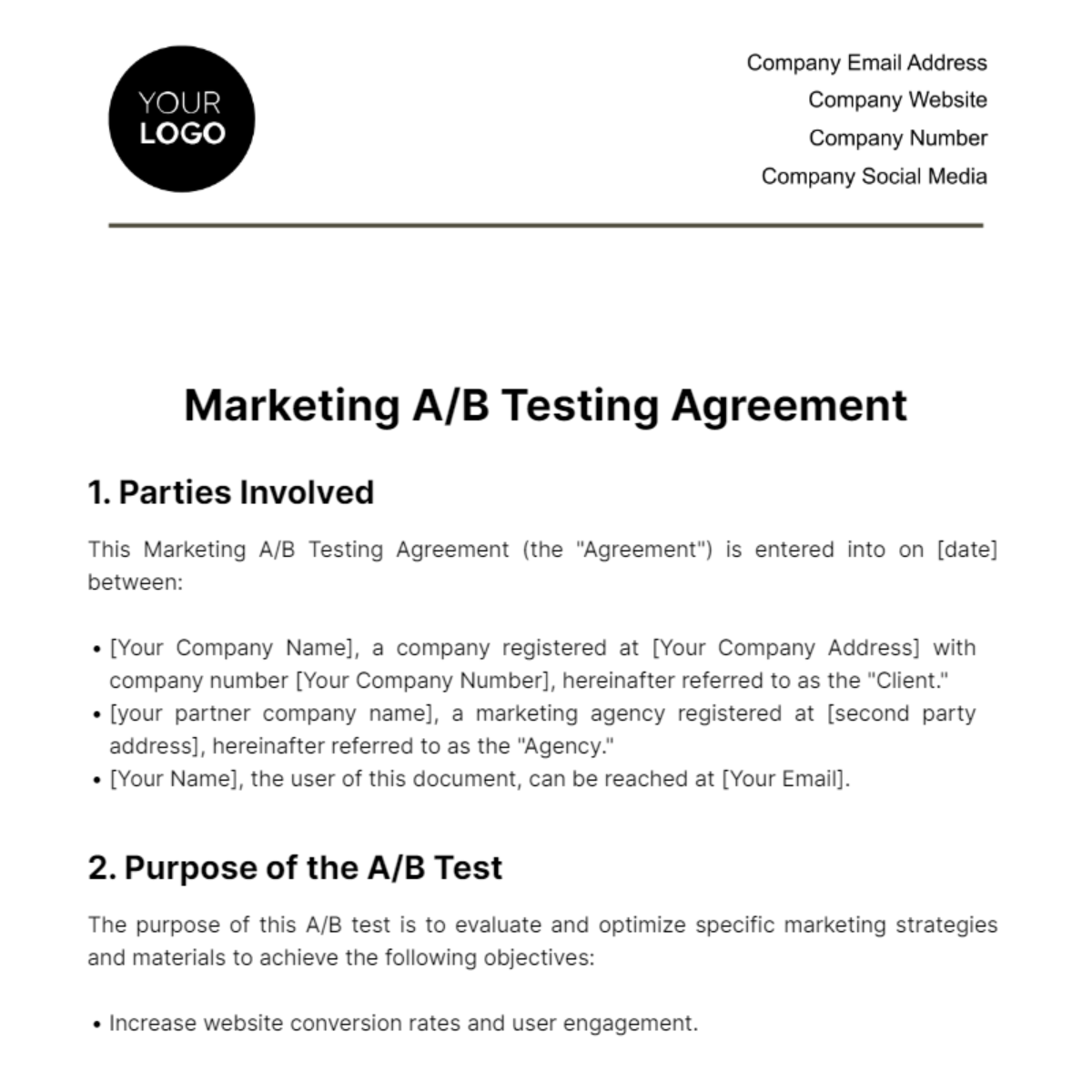Marketing Content Approval Agreement
Prepared by: [Your Name]
Position: Marketing Manager
Date: April 11, 2054
Executive Summary:
The Marketing Content Quality Assessment provides an in-depth analysis of the effectiveness, clarity, and engagement level of the marketing content produced by [Your Company Name]. This evaluation aims to identify strengths and areas for improvement, ensuring that our content aligns with the brand's objectives and resonates with the target audience.
I. Introduction:
A. Purpose of Assessment:
The primary goal of this assessment is to evaluate the overall quality of the marketing content to enhance its impact on the target audience, drive brand awareness, and generate leads.
B. Scope:
This assessment covers a range of marketing materials, including but not limited to website content, social media posts, email campaigns, and promotional materials.
II. Content Relevance:
A. Target Audience Alignment:
Assessment Criteria:
Findings:
Recommendations:
B. Industry Relevance:
Assessment Criteria:
Findings:
Recommendations:
III. Content Clarity:
A. Messaging Consistency:
Assessment Criteria:
Findings:
Recommendations:
B. Language and Tone:
Assessment Criteria:
Findings:
Recommendations:
IV. Engagement Level:
A. Visual Appeal:
Assessment Criteria:
Use of visuals (images, videos, infographics).
Visual consistency with brand identity.
Findings:
Recommendations:
B. Call-to-Action (CTA) Effectiveness:
Assessment Criteria:
Findings:
Recommendations:
V. Conclusion:
The Marketing Content Quality Assessment indicates that [Your Company Name] has made significant strides in producing content that aligns with the target audience and industry standards. The identified areas for improvement provide valuable insights to further enhance content quality, engagement, and overall brand impact.
VI. Next Steps:
A. Implementation Plan:
B. Continuous Improvement:
This assessment serves as a foundation for continuous improvement, ensuring that [Your Company Name] remains at the forefront of delivering compelling and effective marketing content.
[Your Name]
[Position]
[Your Company Email]
[Your Company Number]
Marketing Templates @ Template.net
